Get in a festive mood with these stunning Matcha Checkerboard Cookies. Crisp and light with a subtle green tea powder flavor, these beautiful shortbread cookies practically melt in your mouth. Anyone can make them! They’re perfect to share at a cookie swap or party.
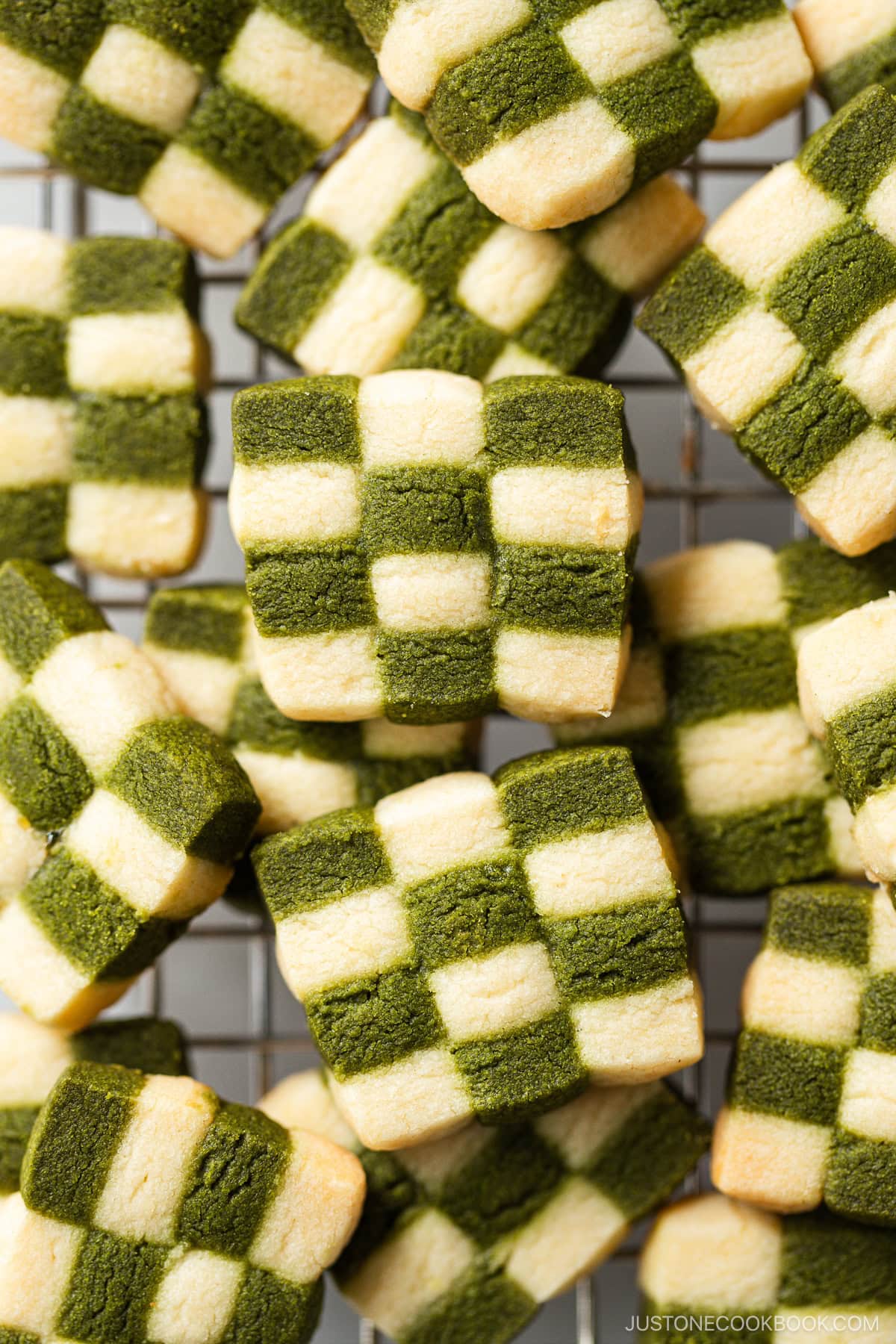
Today, I want to share my recipe for crisp and tender Matcha Checkerboard Cookies that anyone can make. I’ll show you how to elevate a buttery shortbread cookie into something special by rolling, stacking, and slicing the two different colors of dough. Whimsical and eye-catching with a lovely green tea flavor, they are perfect for a cookie swap, dessert tray, or holiday cookie box!
If you love treats with Japanese flavors, try my Black Sesame Cookies, Matcha Cookies with white chocolate chips, and Miso Butter Cookies recipes next!
What are Checkerboard Cookies?
Checkerboard cookies are a type of icebox cookie with a checkered block pattern in two (or more) contrasting dough colors. They often consist of 4 , 9, 12, or 16 blocks. Made with a sablé or shortbread dough, it’s a traditional snack in Sweden known as chessboard cookies or schackrutor. The pattern is similar to England’s Battenberg cake—with two yellow squares alternating with two pink squares—that was created in the 1880s as a royal wedding gift.
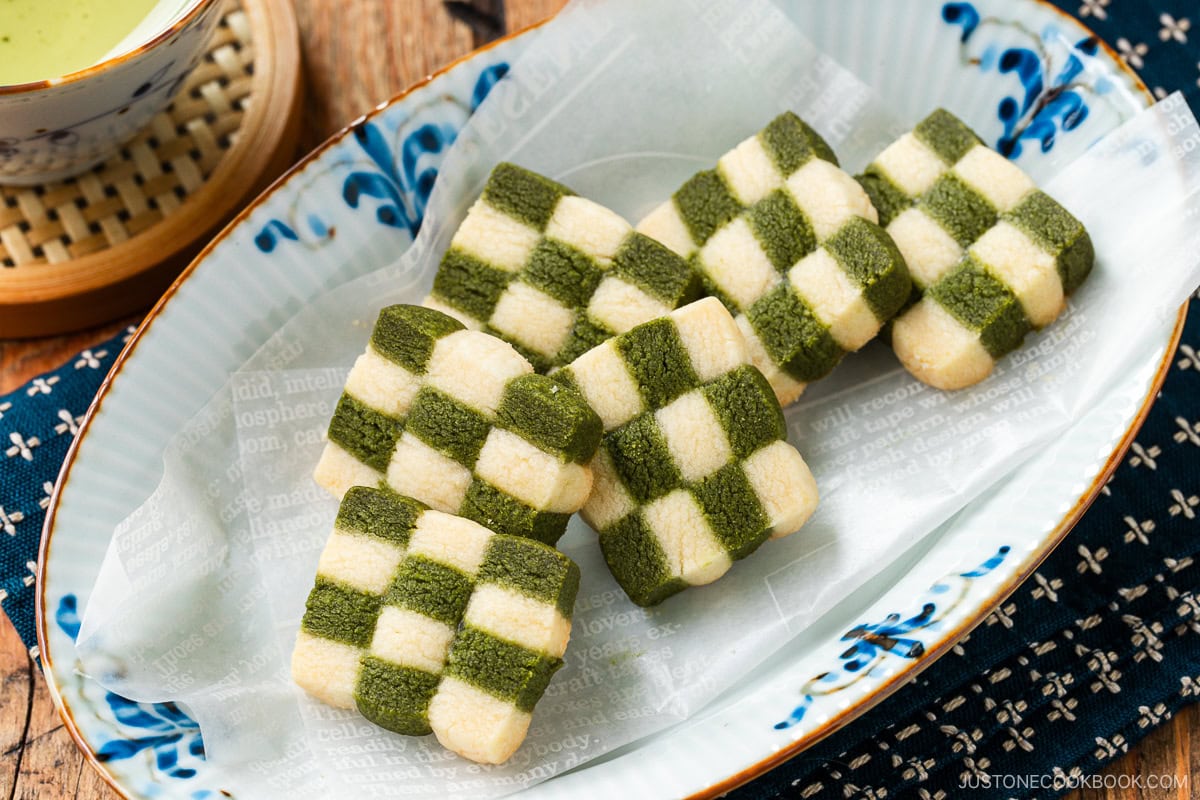
Why I Love This Recipe
- Crispy, light, and tender – I’ll share my tips for handling the dough so these buttery sablé cookies stay tender yet crunchy. I love this crispy texture—we call it saku saku (サクサク) in Japanese!
- Just the right amount of sweetness – Like many Japanese desserts, this cookie is not overly sweet. I love them with tea or coffee for an afternoon snack.
- A subtle, unmistakable matcha flavor – Japanese green tea powder is my absolute favorite flavor for sweets! It has an earthy and slightly bitter taste, a hint of sweet aroma, and a vibrant green color that works so well in this recipe.
- An eye-catching pattern that’s easy to make – The checkerboard pattern may seem complicated to pull off, but it’s actually quite simple. Just follow my steps for how to roll, layer, slice, and stack the white and green cookie dough to get this polished look.
- Convenient, make-ahead dough – You can refrigerate or freeze the dough log in advance, then slice and bake the cookies later. It’s a huge time-saver during the busy holiday season or anytime I want a fresh-baked, homemade cookie but don’t have a lot of time.
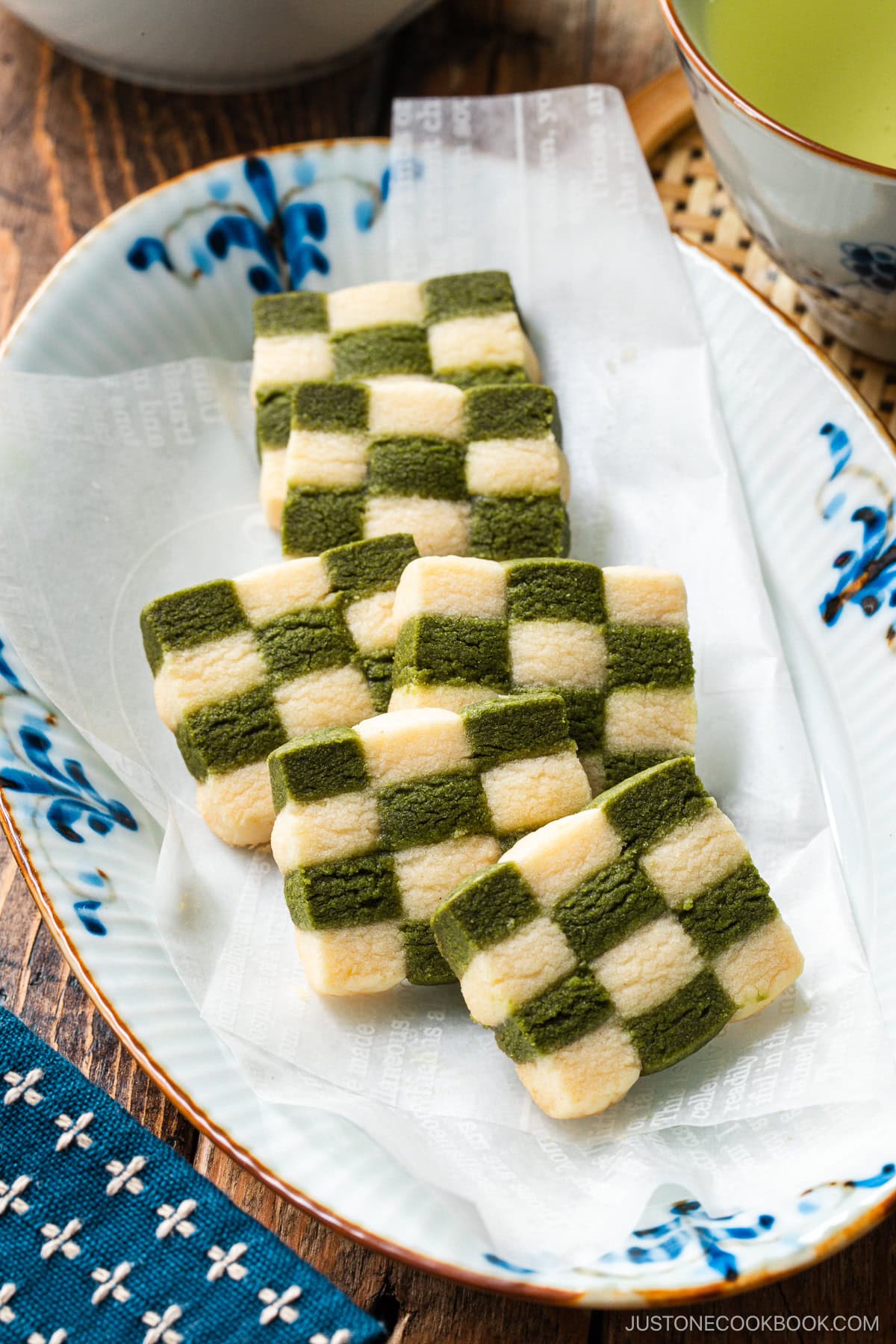
Ingredients for Matcha Checkerboard Cookies
- Matcha (green tea powder)
- Almond flour
- Cake flour
- Unsalted butter – at room temperature
- Confectioners’ sugar
- Large egg yolk – at room temperature
- Kosher salt
- Egg white – reserved from separating the egg yolk; for assembling the dough layers
Find the printable recipe with measurements below.
Substitutions
- Cake flour – Cake flour has a lower protein content and less gluten than all-purpose flour, giving cookies and other pastries a fine crumb and tender structure. Please do not substitute it with all-purpose flour. If you don’t have it, you can make your own cake flour with all-purpose flour and cornstarch. See the recipe card below.
- Almond flour – For a fine texture, please do not substitute almond meal in this recipe. Almond flour is fine and powdery, while almond meal is coarse and heavy. Almond flour also has a lighter color and flavor than almond meal, too.
- Hand or stand mixer with whisk (and paddle) attachments or food processor
- Aluminum baking sheet – please use a light-colored pan; see more about this below.
- 2 resealable (ziplock) plastic bags, sandwich size
- Rolling pin
- Rolling pin guides (optional)
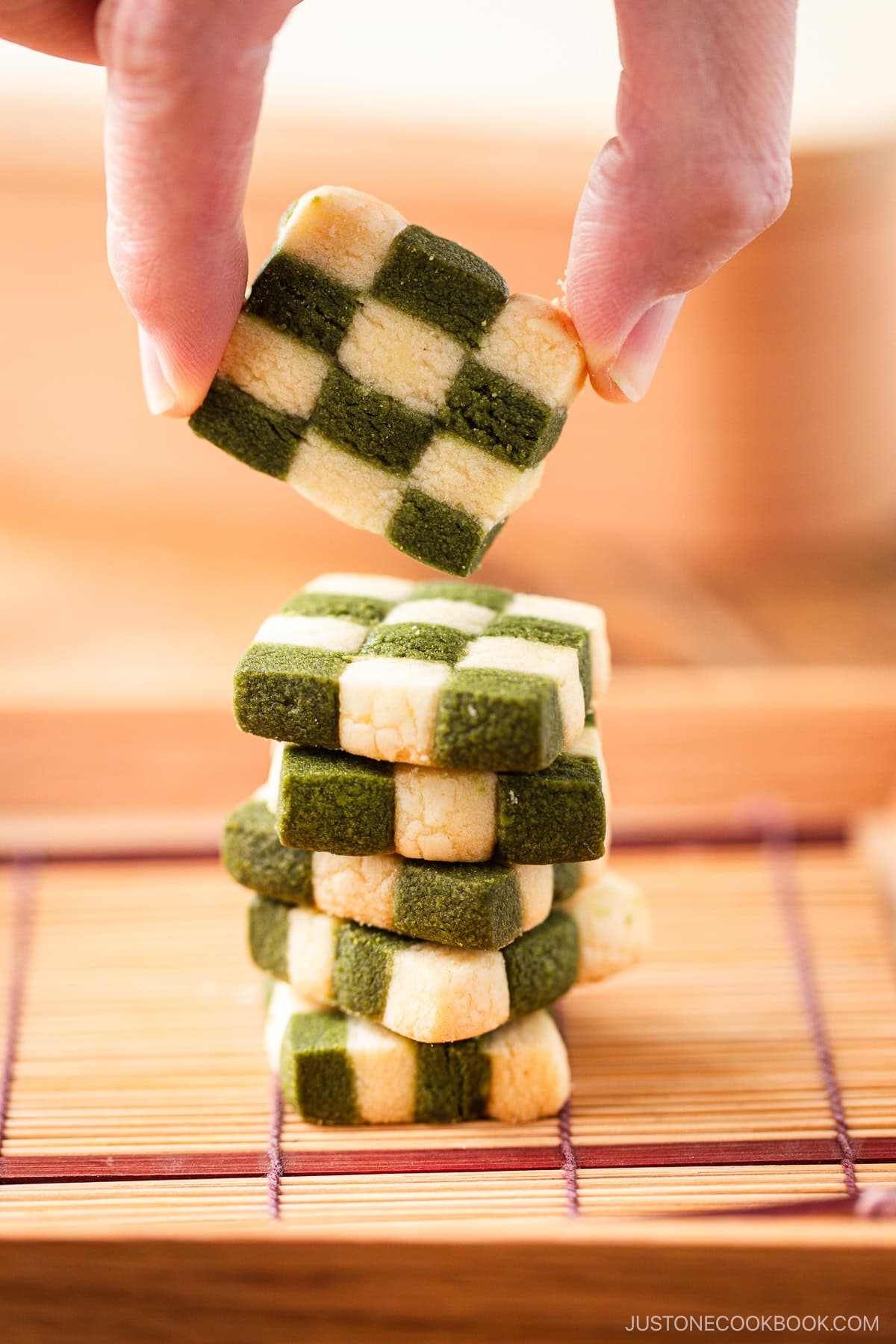
How to Make Matcha Checkerboard Cookies
Preparation
Step 1 – Mix the cookie dough. Smooth the softened butter with a silicone spatula, then use a stand mixer to cream the powdered sugar and butter together until the mixture turns airy and pale. Add the salt and egg yolk, then blend in the almond flour until smooth.
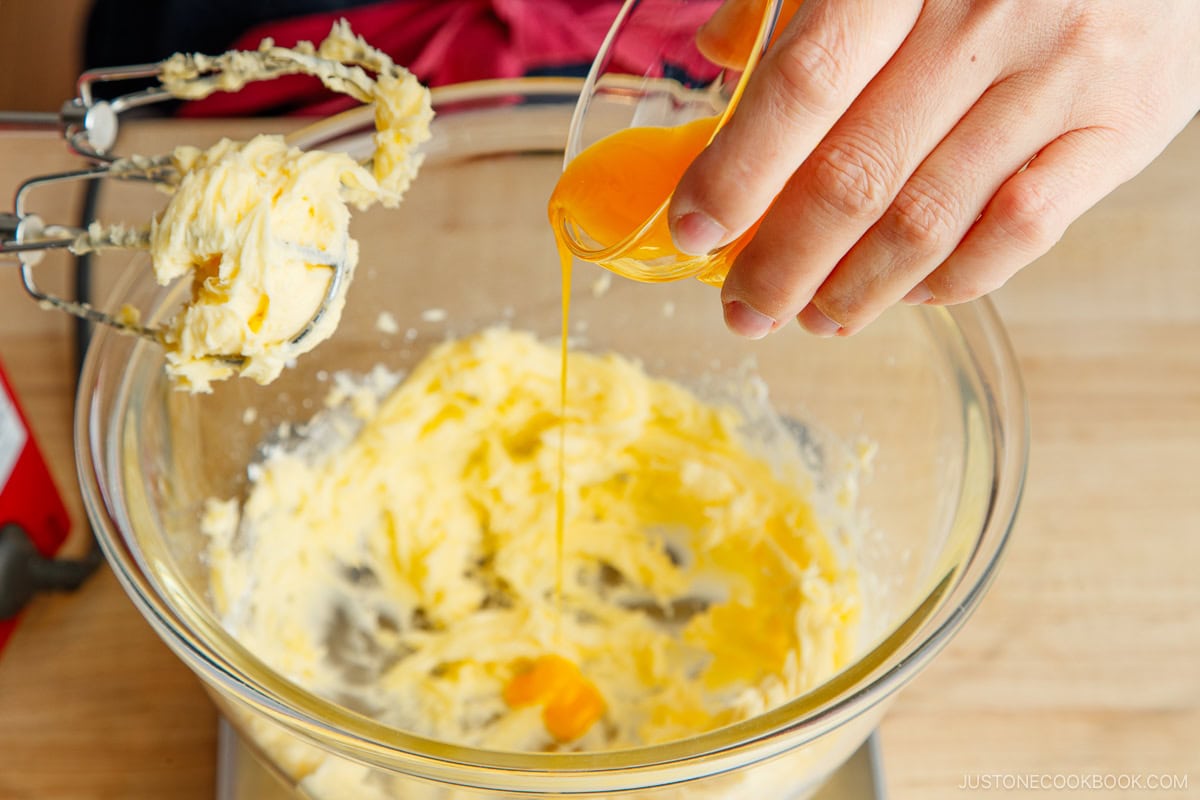
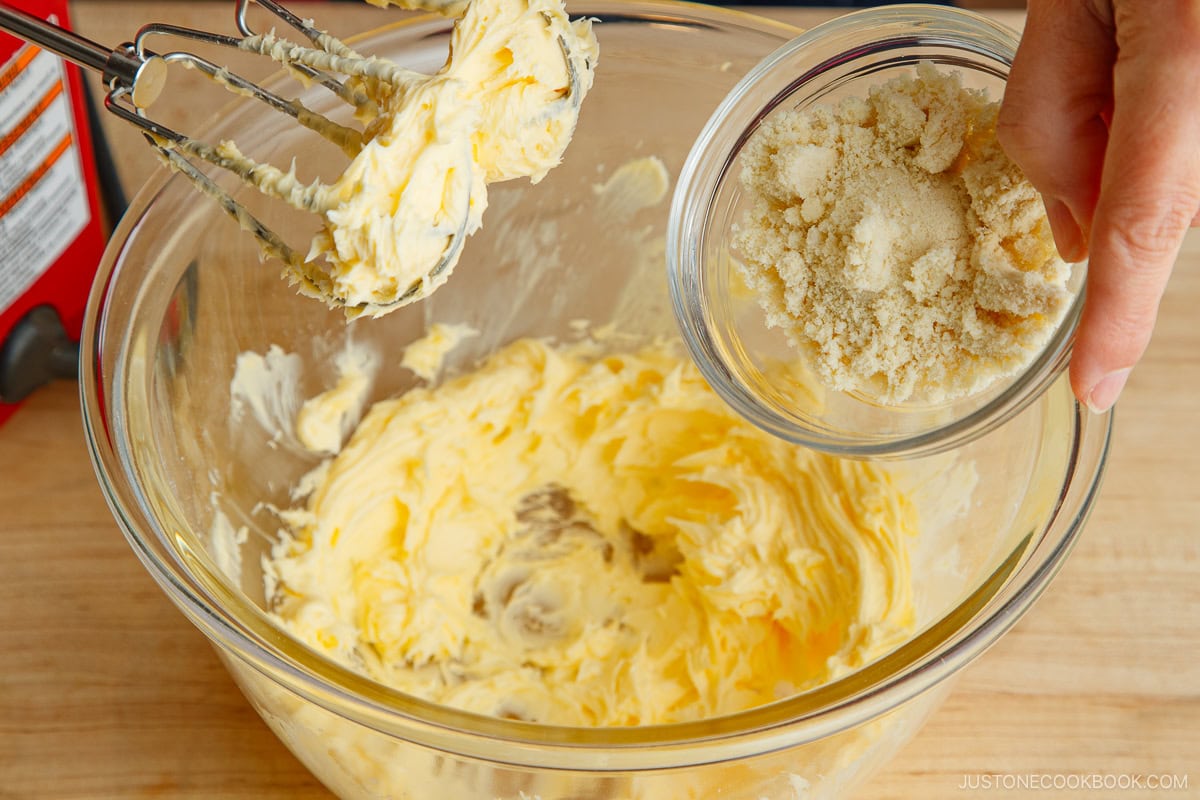
Step 2 – Make the plain dough and matcha dough. Weigh and divide the dough mixture into two bowls. For the light-colored dough, add cake flour and fold by hand with a spatula until just combined. Do not overmix. Repeat for the green-colored dough with cake flour plus matcha powder.
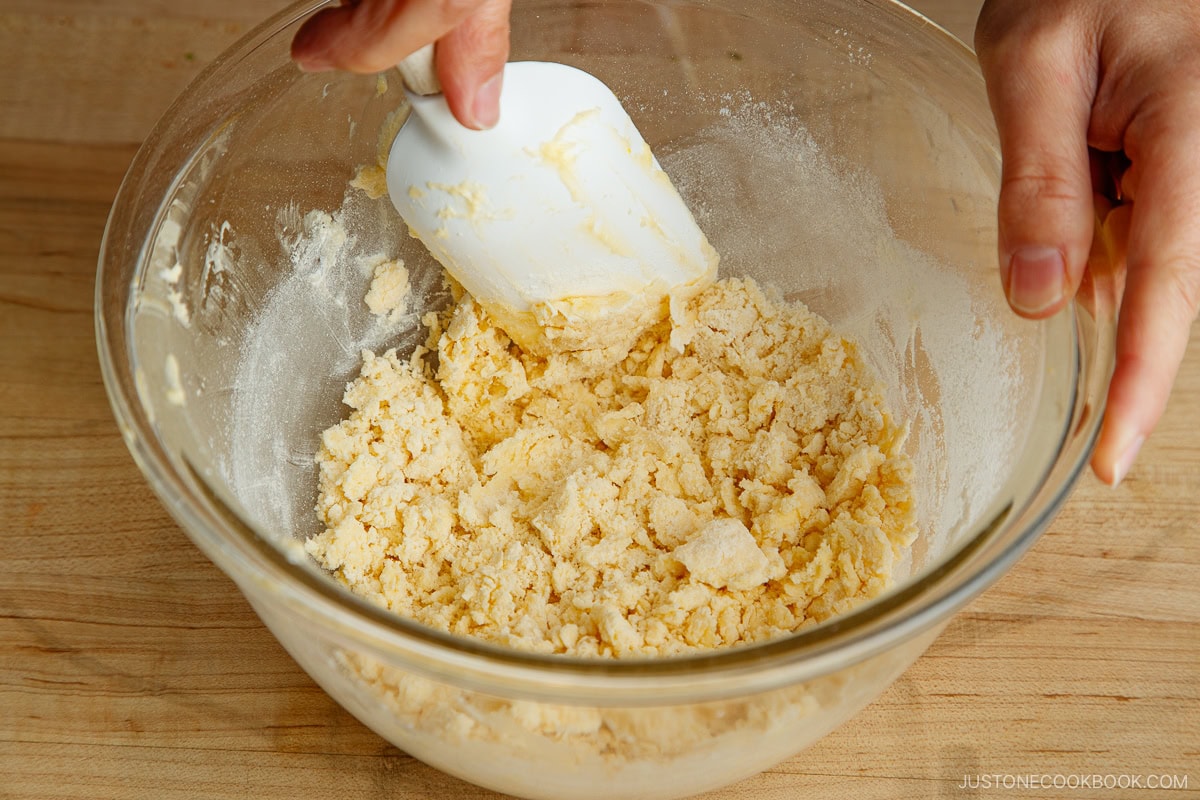
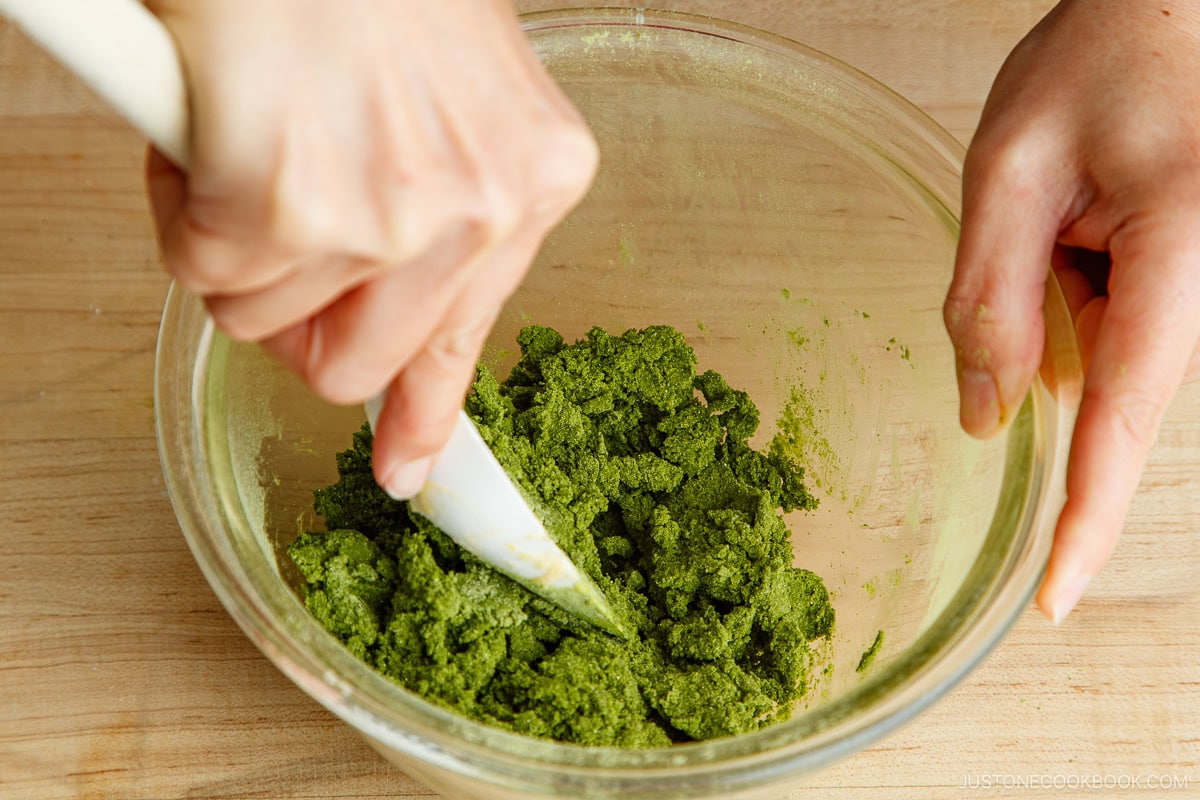
Step 3 – Roll out the dough. Gather each dough and place in its own sandwich bag. Roll flat using a rolling pin and chill for at least an hour.
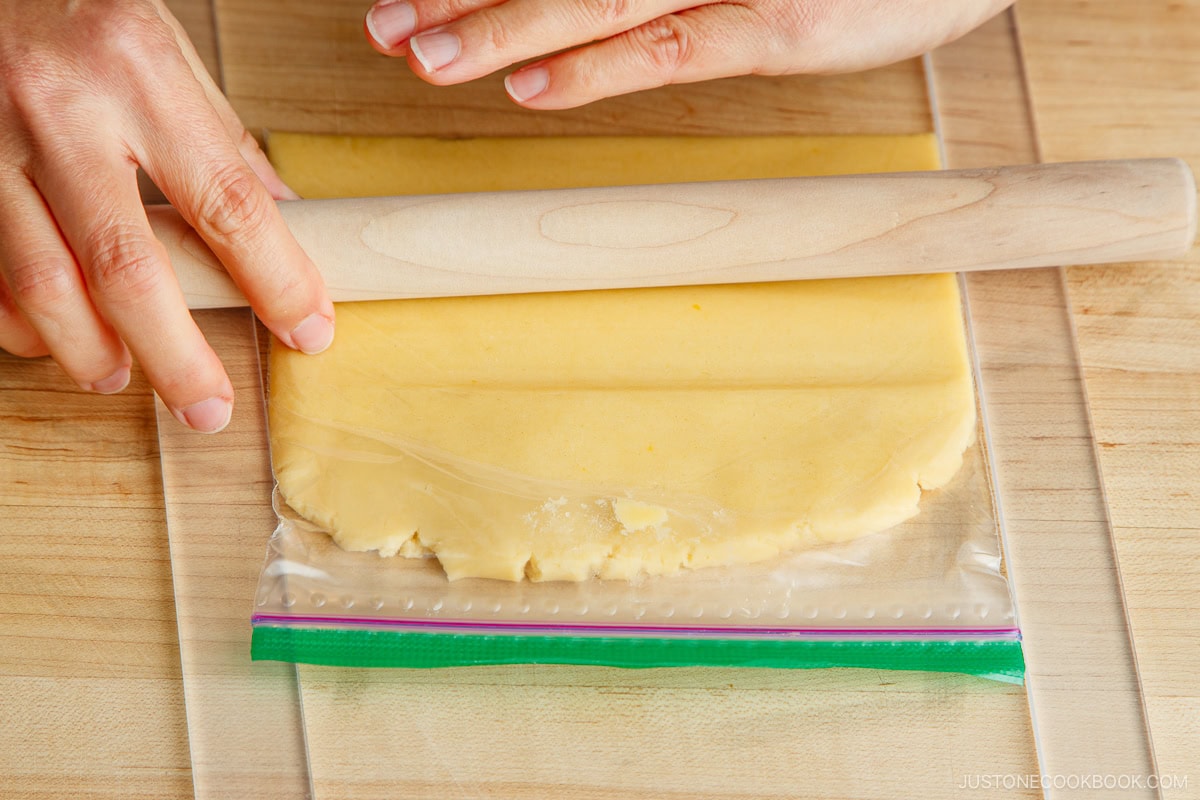
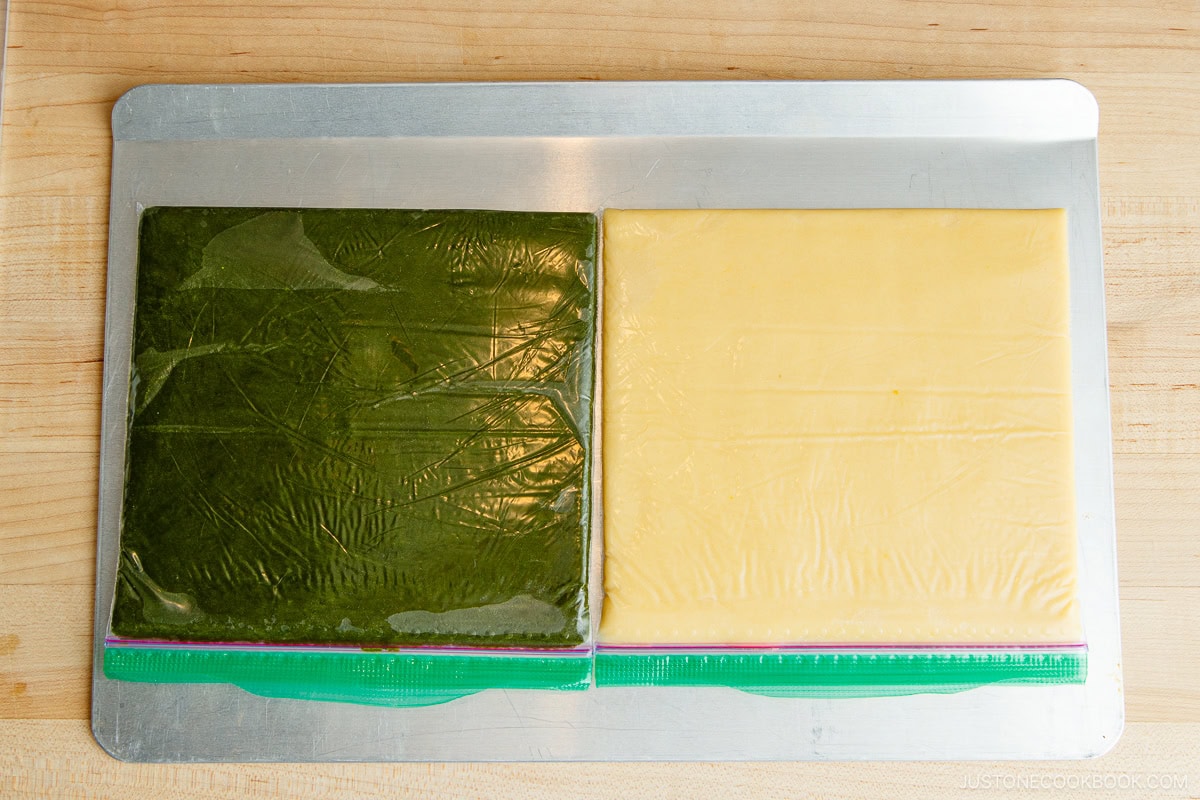
Assemble
Step 4 – Layer the two cookie dough colors. Lightly brush the surface of one flattened dough with egg white. Place the other dough on top and gently press to adhere. Next, cut the layered dough in half, brush one half with egg white, and stack to create four layers of alternating colors.
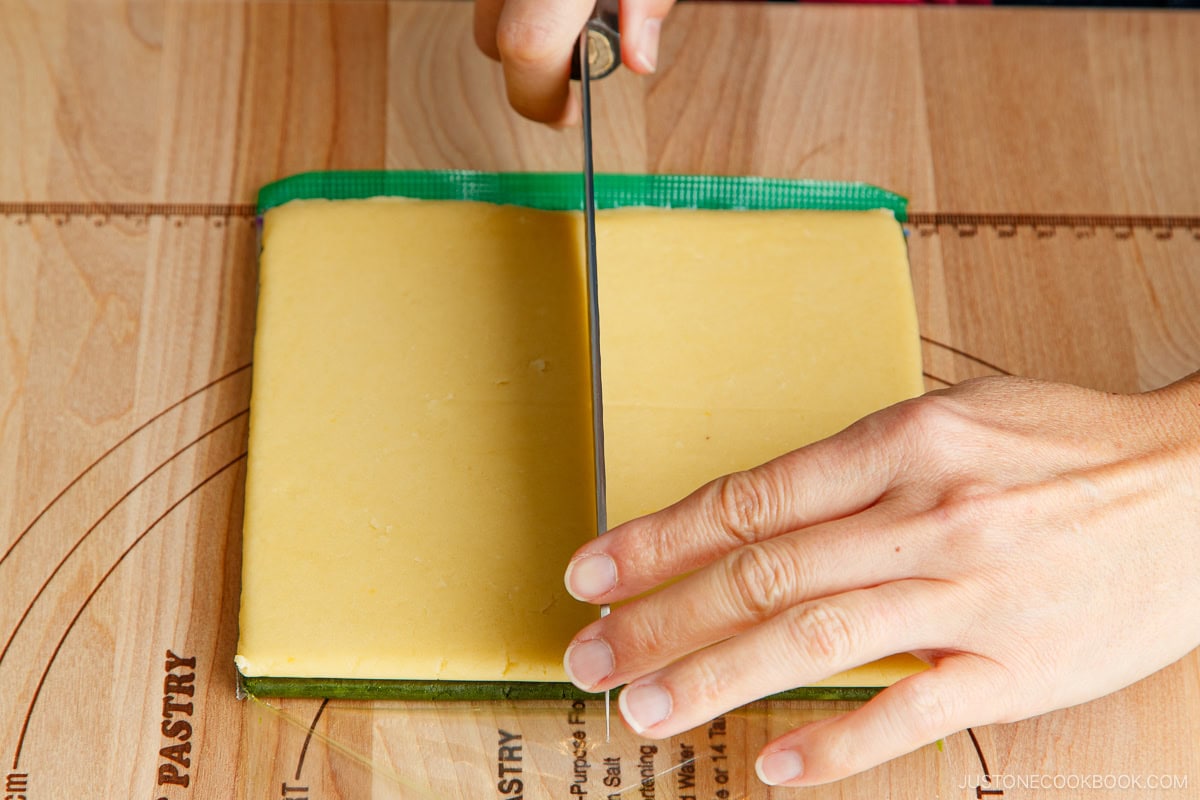
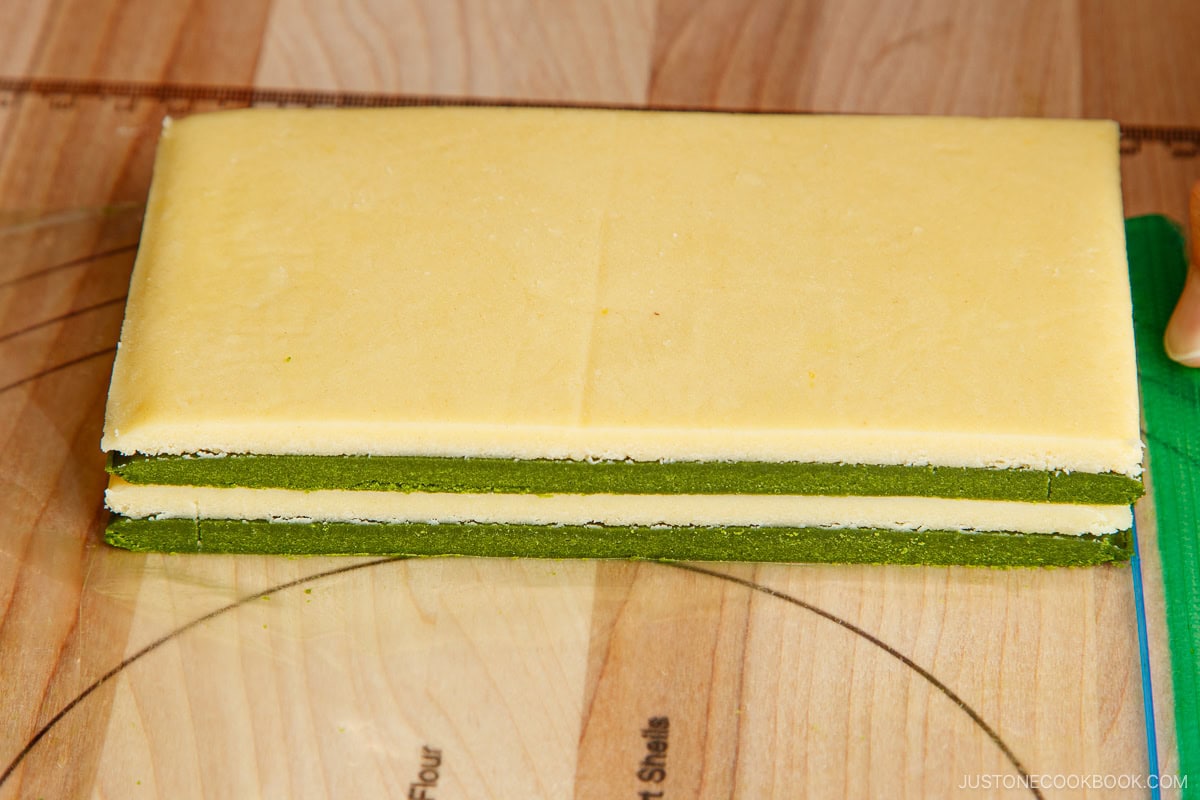
Step 5 – Cut strips to make checkerboard logs. Cut straight down on the layered dough to make 1-cm strips. Lay 3 strips flat and flip over the middle strip to reverse the colors. Brush with egg white and stack so the colors alternate. Repeat for the other log. Chill to firm up.
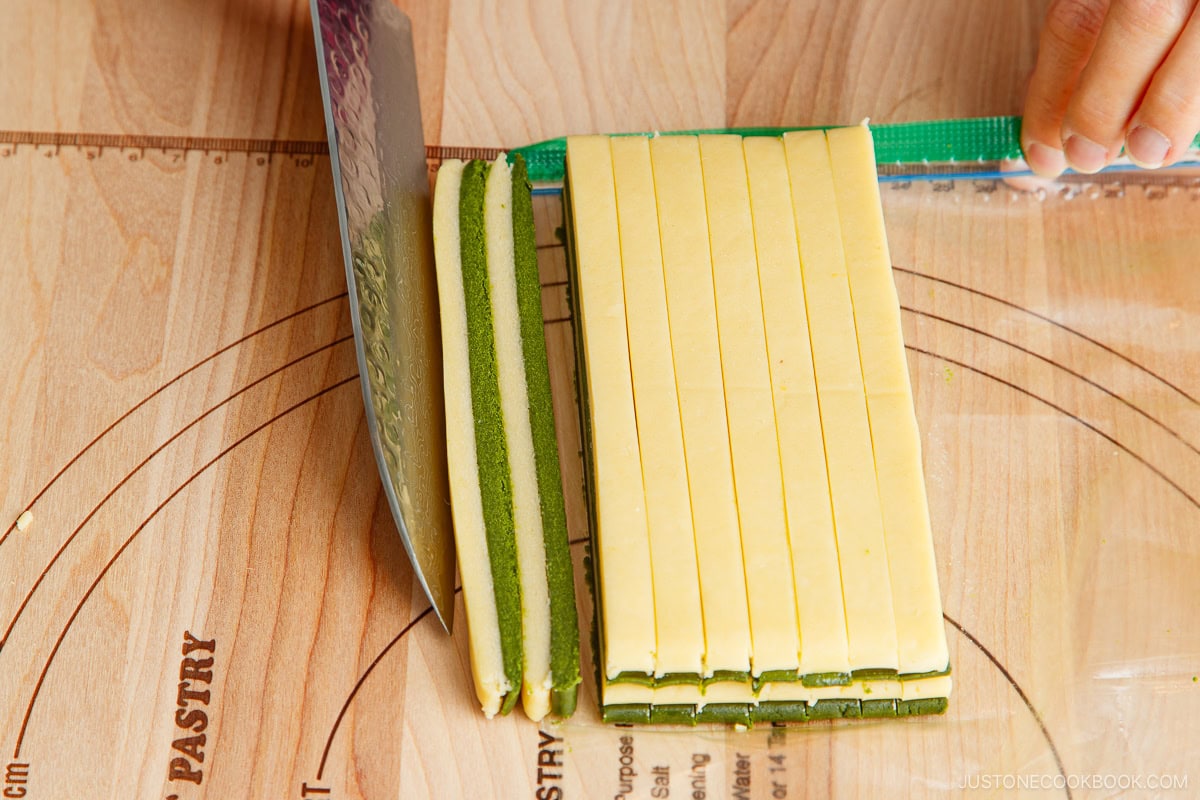
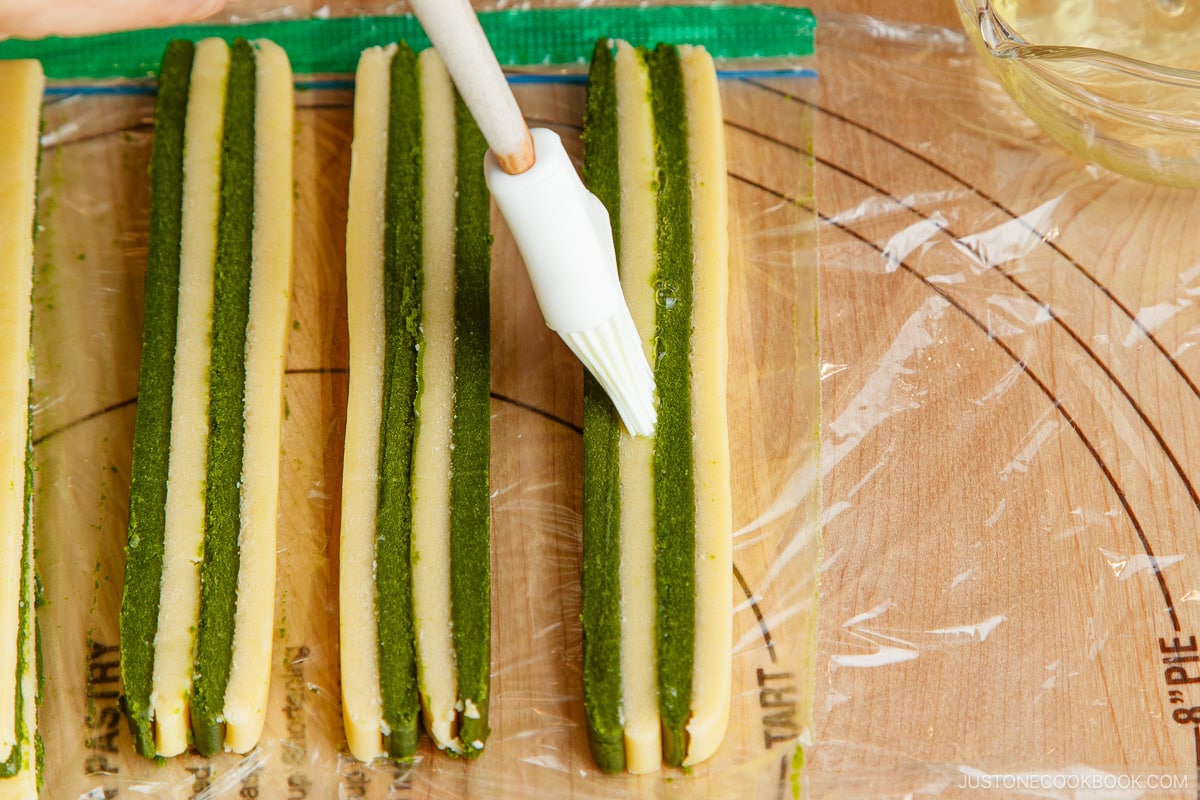
Baking
Step 6 – Slice and bake the cookies. Preheat the oven to 350°F (175°C). Cut the log into cookie slices ¼ inch (7 mm) thick. Place the cookies on an aluminum baking sheet lined with parchment paper and bake for 15 minutes, or until slightly browned on the bottom.
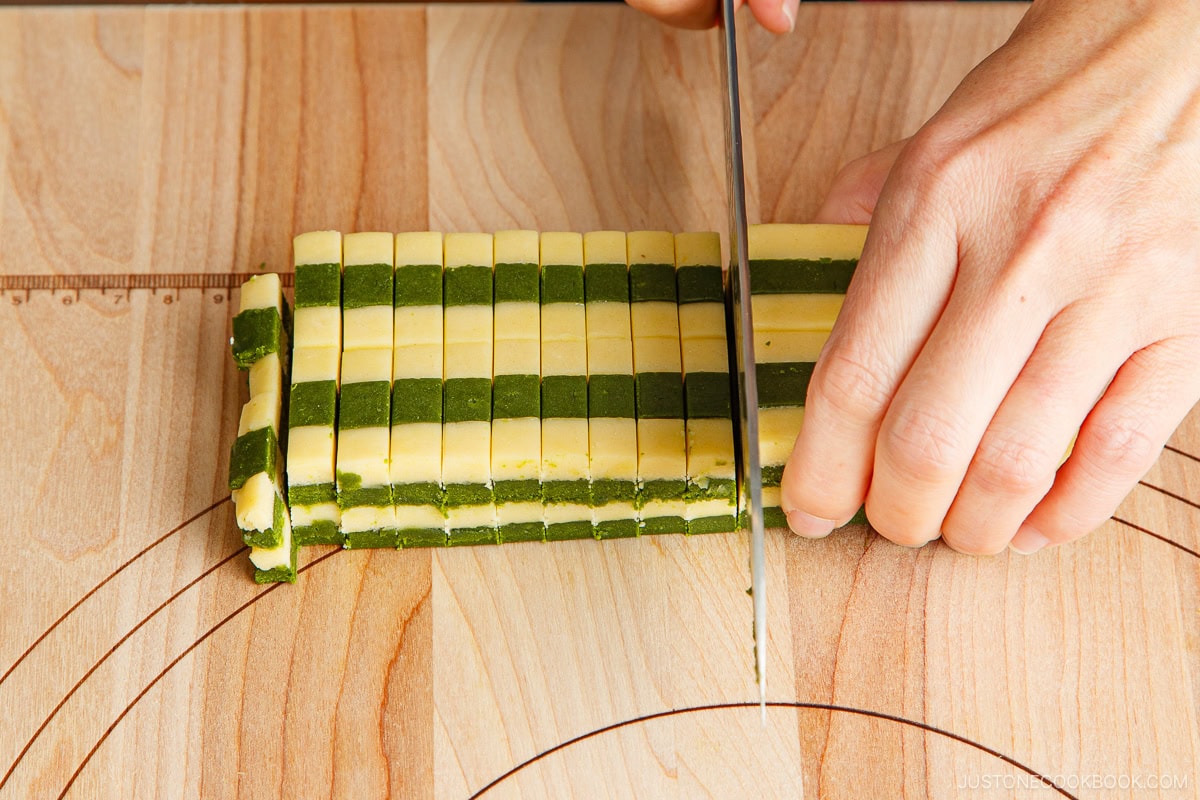
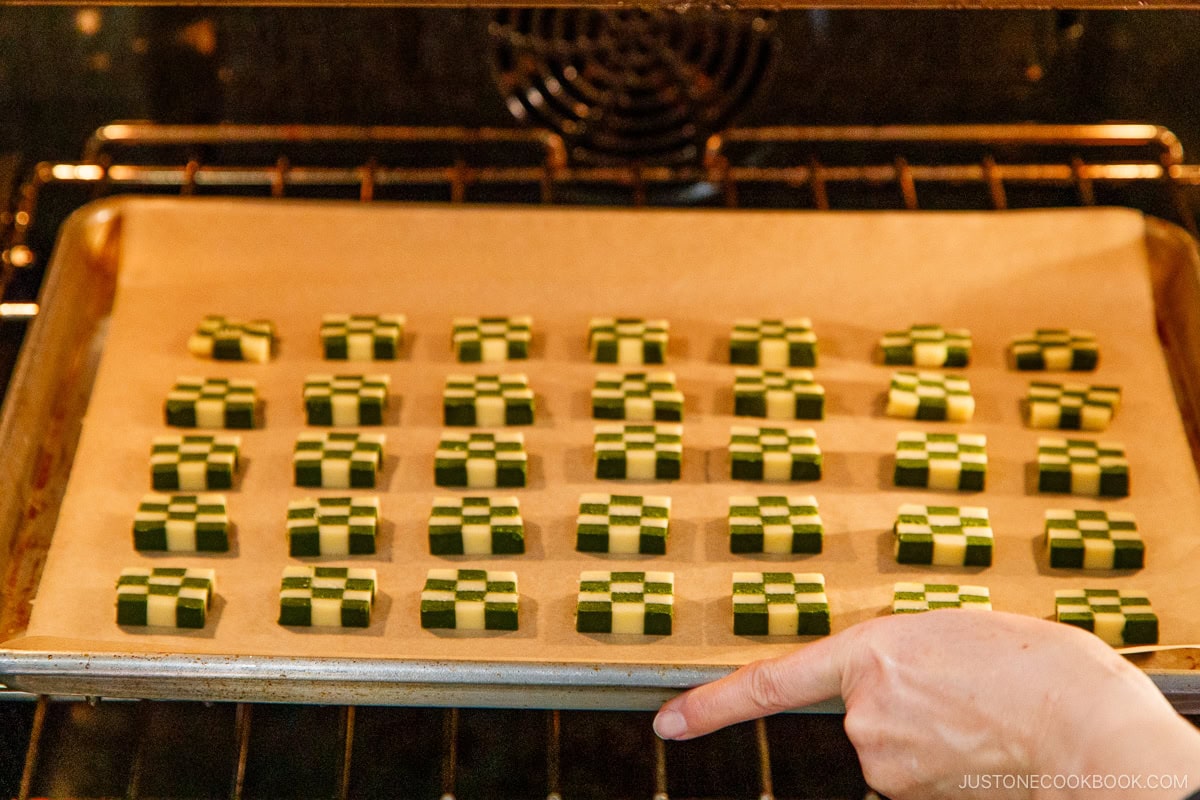
Step 7 – Cool on a wire rack and serve. Remove from the oven and let rest on the baking sheet for 5 minutes, then transfer to a wire rack to cool completely and crisp up. Enjoy!
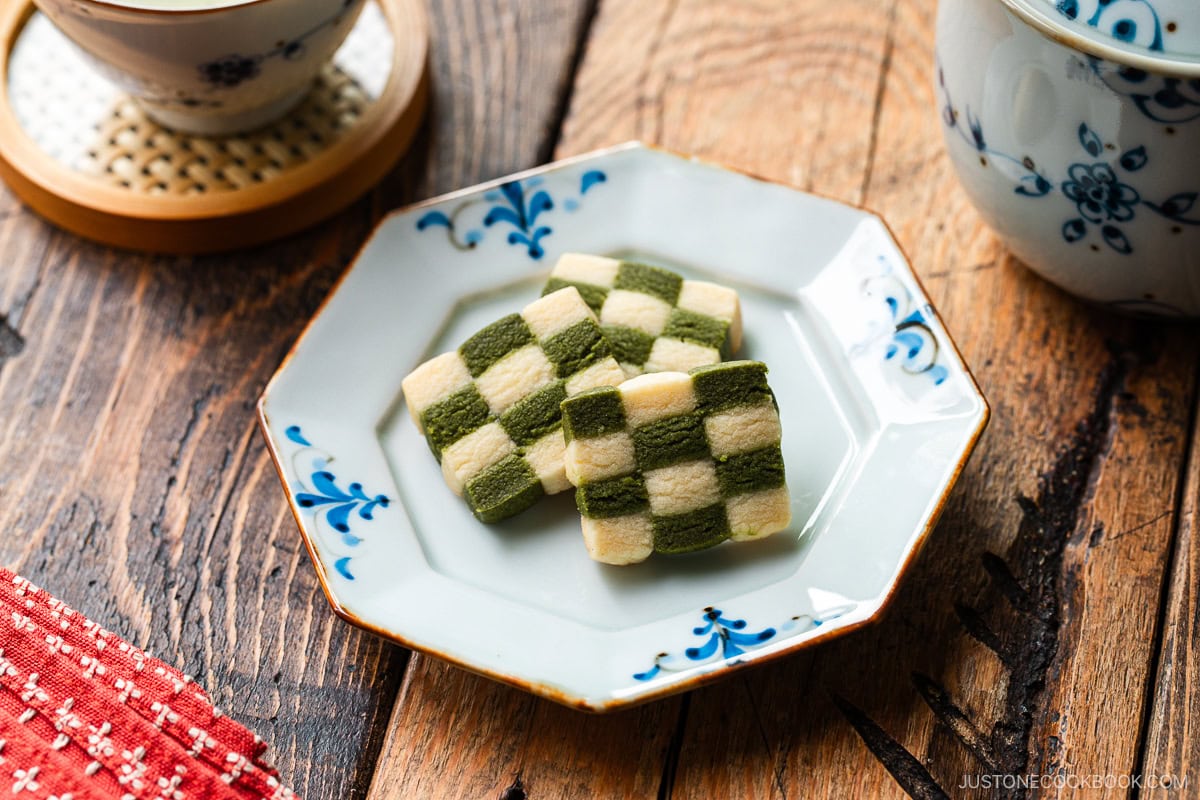
Nami’s Recipe Tips
- Use room-temperature butter and egg. For the ingredients to blend evenly and cohesively, it’s crucial start with the butter and egg yolk at room temperature (70–72ºF or 22ºC). Leave them on the counter for 1 hour (or longer in colder environments) before mixing. If you forget to take them out of the fridge early, here are two quick tricks that I learned from my daughter, who is the home baker in our family: 1) For a cold egg, soak it in warm water for 10–15 minutes; and 2) for a stick of cold butter, microwave and turn for 5 seconds per long side for a total of 20 seconds (1000W).
- Don’t overmix the dough. When it’s time to mix in the cake flour, blend it only until it’s just combined. If you mix it too long, the gluten in the flour will develop and make the cookies tough.
- Chill the dough twice. I know it may be tempting to skip it, but chilling the cookie dough until firm is essential. It intensifies the flavors and retains the cookies’ shape so they don’t spread in the oven. It helps keep the beautiful checkerboard edges sharp and neat. Chilling also keeps the cookies from burning easily in the oven.
- To roll the dough evenly, use Japanese disposable chopsticks and Ziplock sandwich bags as a guide. Before I had rolling guides, I put the dough ball in a bag and used square-sided Japanese disposable chopsticks or cooking chopsticks on either side of the dough ball. I would roll out the dough with a rolling pin to the same height of the chopsticks, about ¼ inch (5 mm) thick. I recommend this trick to make your dough an even thickness.
- Use a light-colored, aluminum baking sheet. I strongly encourage using light-colored pans because aluminum conducts heat uniformly so your cookies brown evenly. An aluminized steel baking sheet also works. In the past, I’ve burned the bottom of my baked goods on a dark-colored baking sheet. Therefore, I highly discourage using a carbon steel or dark-colored baking sheet.
- Check your oven’s actual temperature with an oven thermometer. The actual temperature inside may differ from the display setting. Every oven is different, so please adjust the setting to achieve the correct actual temperature. Keep in mind that your baked goods may cook faster if you use a countertop (or other small) oven. Closely monitor the condition of the cookies and adjust the bake time.
- Remove the cookies when just barely golden. The residual heat from the baking sheet will brown the cookies more, so remove them from the oven when they are just a tad brown. Cool for 5 minutes on the baking sheet, then transfer the cookies to a wire cooling rack.
- Cool completely on a wire rack. Transfer the cookies from the baking sheet to a wire cooling rack. This allows the steam to escape the hot cookies so they can crisp up. Bring the cookies to room temperature before storing them to maintain their crunch.
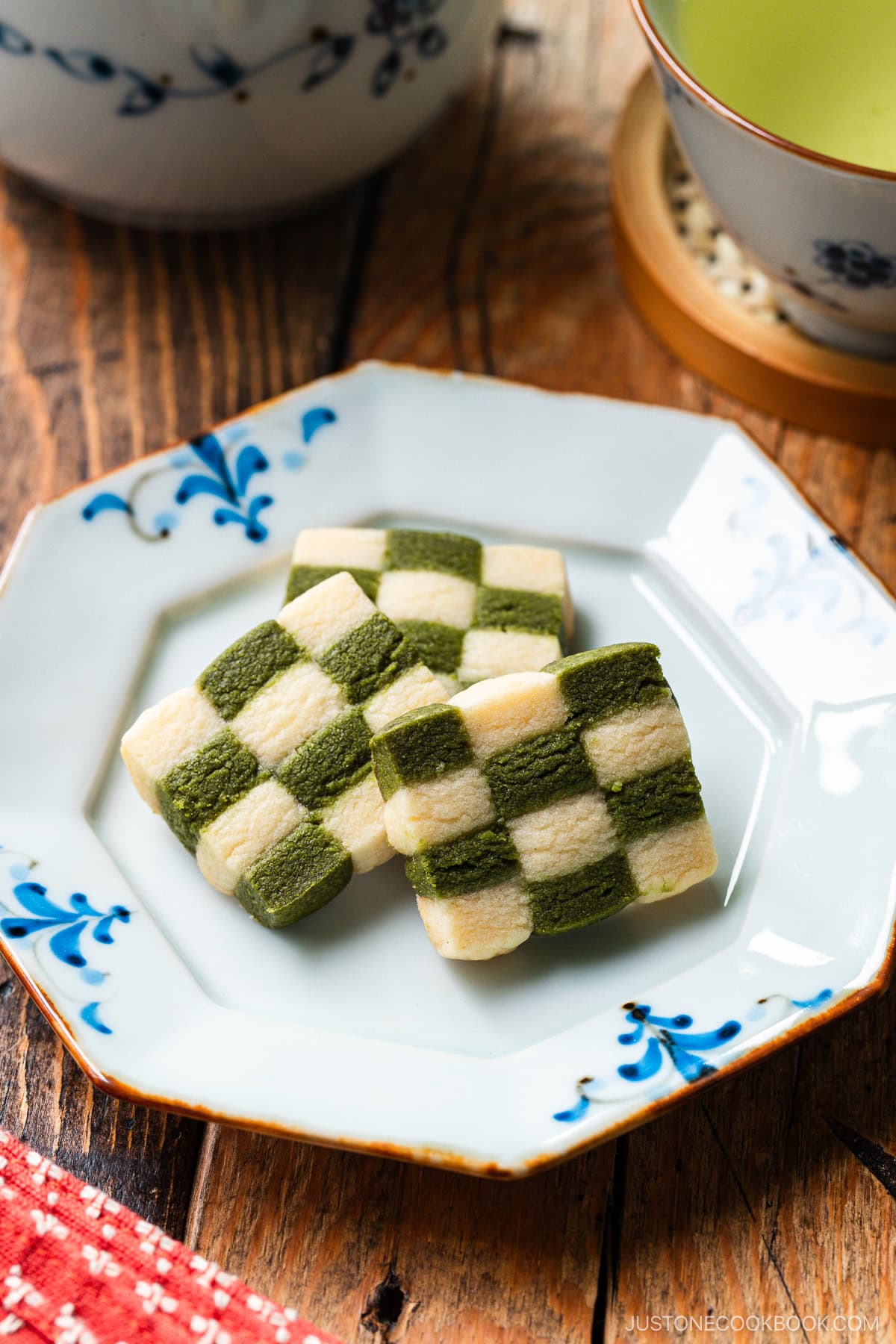
Variations and Customizations
This butter cookie recipe is easy to customize so you can achieve the look and taste you want. Try my suggestions below.
- Roll the cookies in sparkling sugar or sprinkles. For an extra festive look, you can roll the dough log in clear sparkling sugar or colored sanding sugar before you slice and bake the cookies. This will create a shimmery edge to the cookies. Colorful sprinkles also could make a cute decoration. The sparkling sugar and sprinkles will keep their shape and add more sweetness to the cookies, too.
- Change the flavors and colors. You can make this versatile plain dough almost any flavor and color you like to suit the occasion or season. For a classic springtime combo, I love pairing green matcha with pink-red strawberry. You can make pink dough by mixing a powder of pulverized, freeze-dried strawberries or salt-pickled cherry blossoms into the plain dough. For other colors and flavors, try swapping Dutch-process cocoa powder, Earl Grey tea powder, hojicha powder, or lemon zest.
- Add almond extract. While I kept this recipe pure to enhance the matcha flavor, you could add a small dash of almond extract to the dough if you’d like. Almond extract adds a sweet, bright taste and exquisite fragrance to baked goods. Be sure to use a light touch, though. I usually skip making an almond or vanilla dough because the flavor can overwhelm the subtle matcha taste.
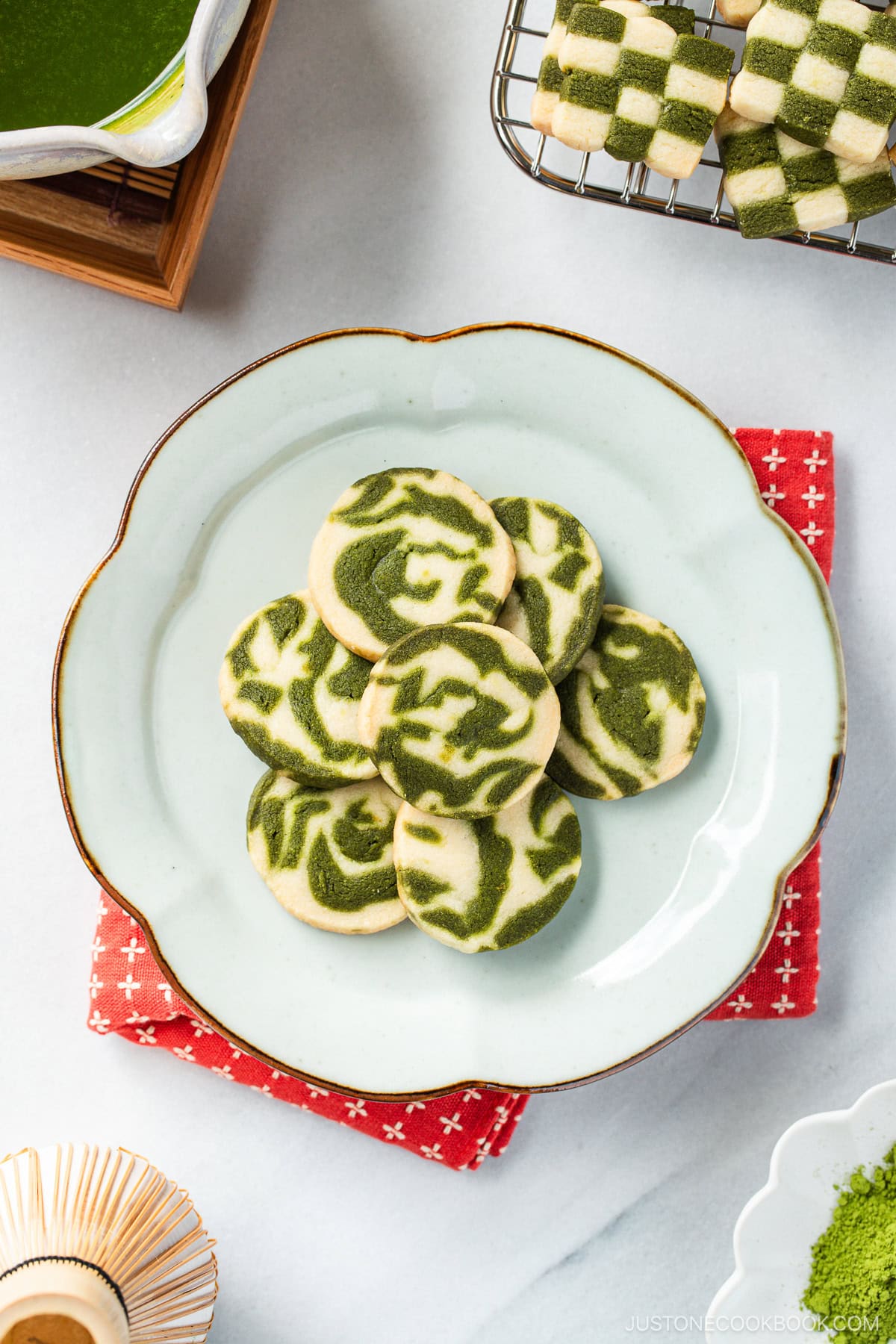
Storage Tips
To store: Cool the cookies completely, then store them in an airtight container at room temperature for up to 1 week. To freeze, transfer the cooled cookies to an airtight container or resealable freezer bag and store in the freezer for up to 3 months. Thaw in the refrigerator overnight to enjoy.
To freeze the cookie dough: Tightly wrap the checkered dough logs in plastic wrap and put them in freezer bags. Freeze for up to 3 months. Thaw them in the refrigerator for 2 hours before slicing and baking.
Frequently Asked Questions
Why did my cookies spread in the oven?
If you did not chill your cookie dough until firm, that may have caused your cookies to go flat during baking. Be sure to chill the dough twice—first after you make the two different doughs and roll them flat, then again after you assemble the checkerboard dough logs. Chill each time for at least 1 hour or until firm if your kitchen is warm. This will help your cookies hold their shape and keep sharp edges.
Why are my cookies dense and tough?
You may have overworked the cookie dough and caused too much gluten to develop in the flour. To avoid overmixing, gently fold in the cake flour by hand only until it’s just combined; stop mixing when there are no pockets of dry flour left. Also, try not to add flour to your work surface when you roll out the dough and assemble the checkerboard log. You shouldn’t need to dust flour if you use the sandwich bags.
I didn’t have time to soften the butter. Can I use cold butter?
Cold, firm butter is challenging to beat, and sugar will not fully blend and cream together with cold butter. This makes it difficult to incorporate air into the mixture, resulting in tougher cookies. You also risk overworking the dough since cold butter takes longer to mix with the other ingredients. For the best results, soften the butter to 70–72ºF (around 22ºC) before mixing. I usually leave the butter on the counter for about an hour. If you forget to take out the butter from the fridge, see my Recipe Tips above for my daughter’s trick to quickly soften it.
Can I use granulated sugar instead of powdered sugar (confectioners’ sugar)?
I definitely recommend using powdered sugar over granulated sugar in icebox cookies because its fine texture blends seamlessly into the dough, creating a smoother, more uniform consistency. It also dissolves quickly and evenly, resulting in tender, melt-in-your-mouth crumb, unlike granulated sugar, which can leave a grainy texture. Additionally, the cornstarch in powdered sugar helps reduce spread during baking, ensuring the cookies maintain their precise shape and clean edges. Due to all these reasons, I definitely use powdered sugar for my icebox cookies!
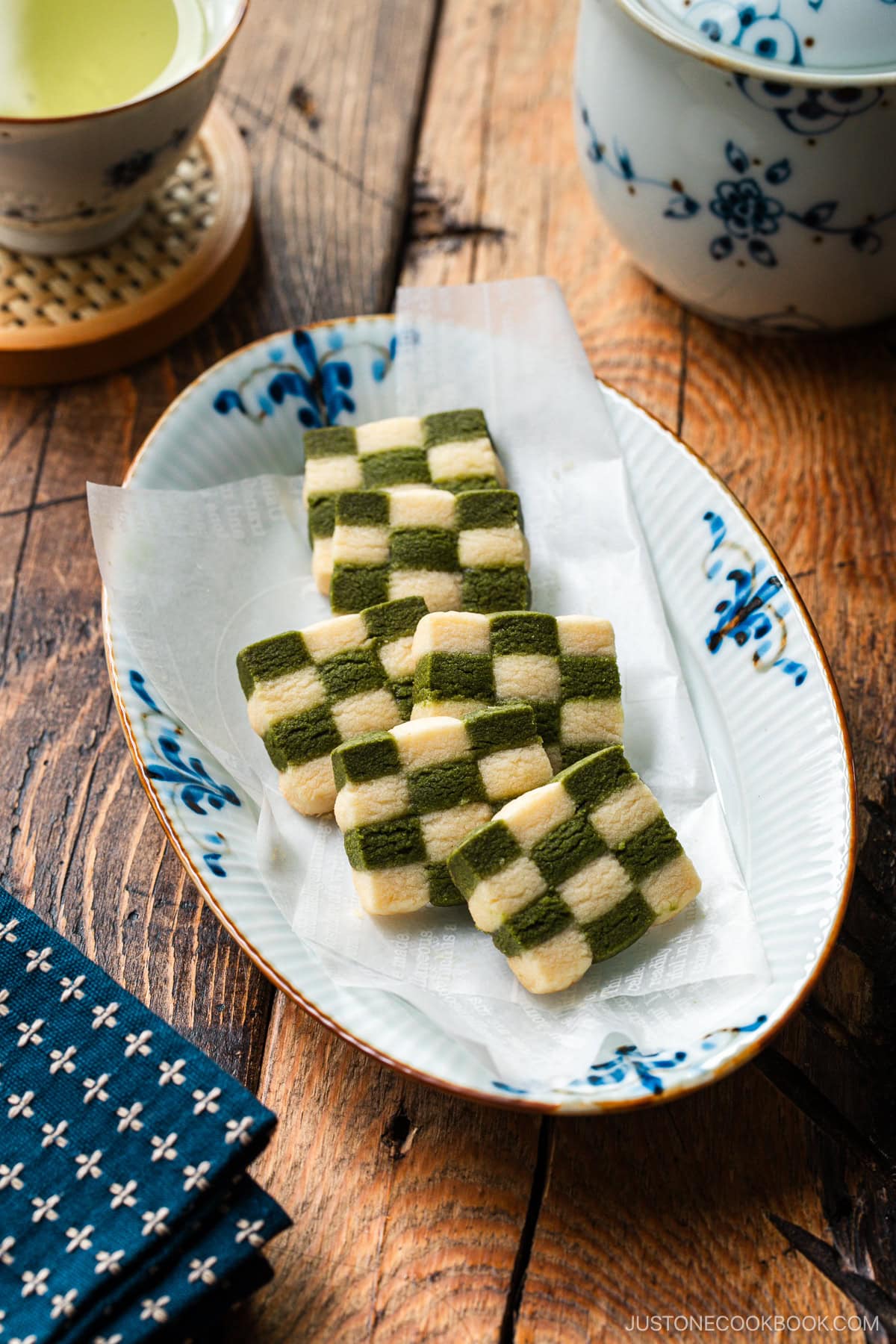
More Matcha Dessert Recipes
If you love these Matcha Checkerboard Cookies, you’re in for a treat with these other irresistible recipes for matcha sweets.
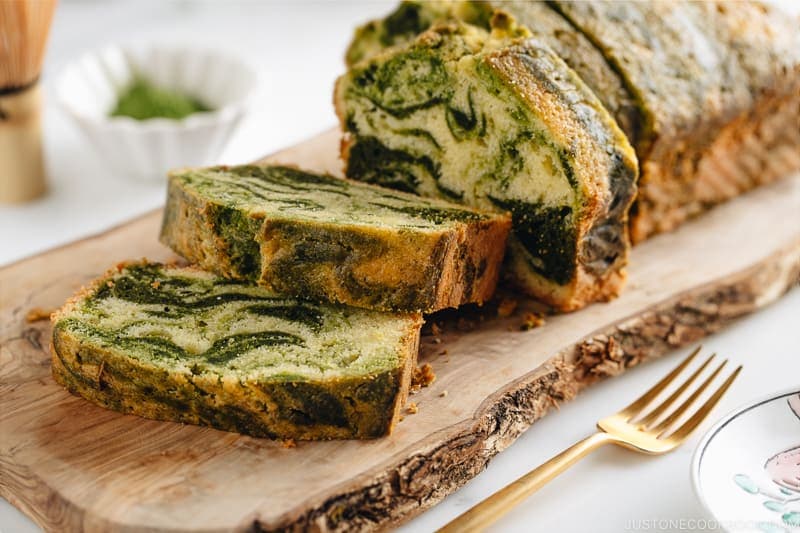
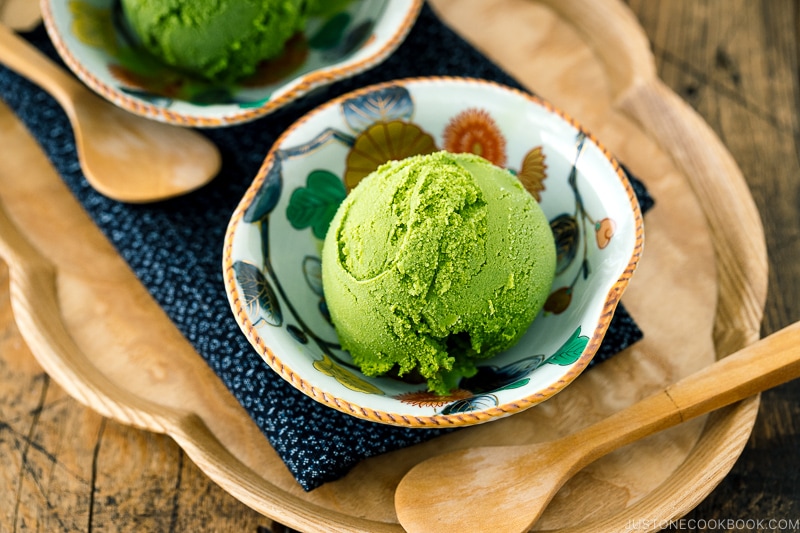
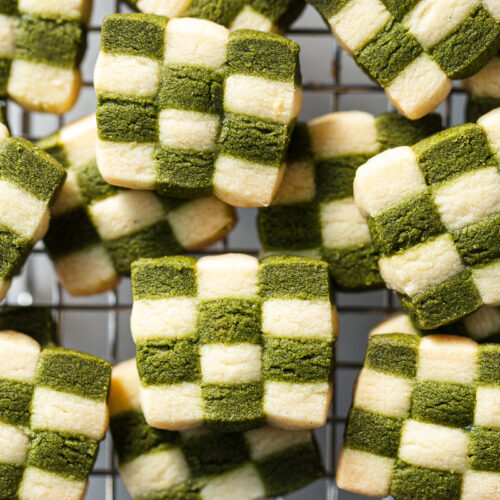
Prep Time: 45 minutes
Cook Time: 15 minutes
Chill Time: 2 hours
Total Time: 1 hour
Servings: 35 checkered cookies (plus more from leftover dough)
Japanese Ingredient Substitution: If you want substitutes for Japanese condiments and ingredients, click here.
Before We Start: Please remember that this recipe requires at least 2 hours of chilling time. I encourage dividing the baking process into morning and afternoon or two days (chilling overnight) to minimize the waiting periods.
Gather all the ingredients. Allow the unsalted butter to soften to room temperature for 1 hour or longer. I highly encourage you to weigh your ingredients using a kitchen scale. For weights, click the “Metric“ button at the top of the recipe to convert the measurements. If you‘re using a cup measurement, please follow the “fluff and sprinkle“ method: Fluff your flour with a spoon, sprinkle the flour into your measuring cup, and level it off. Otherwise, you may scoop more flour than you need.
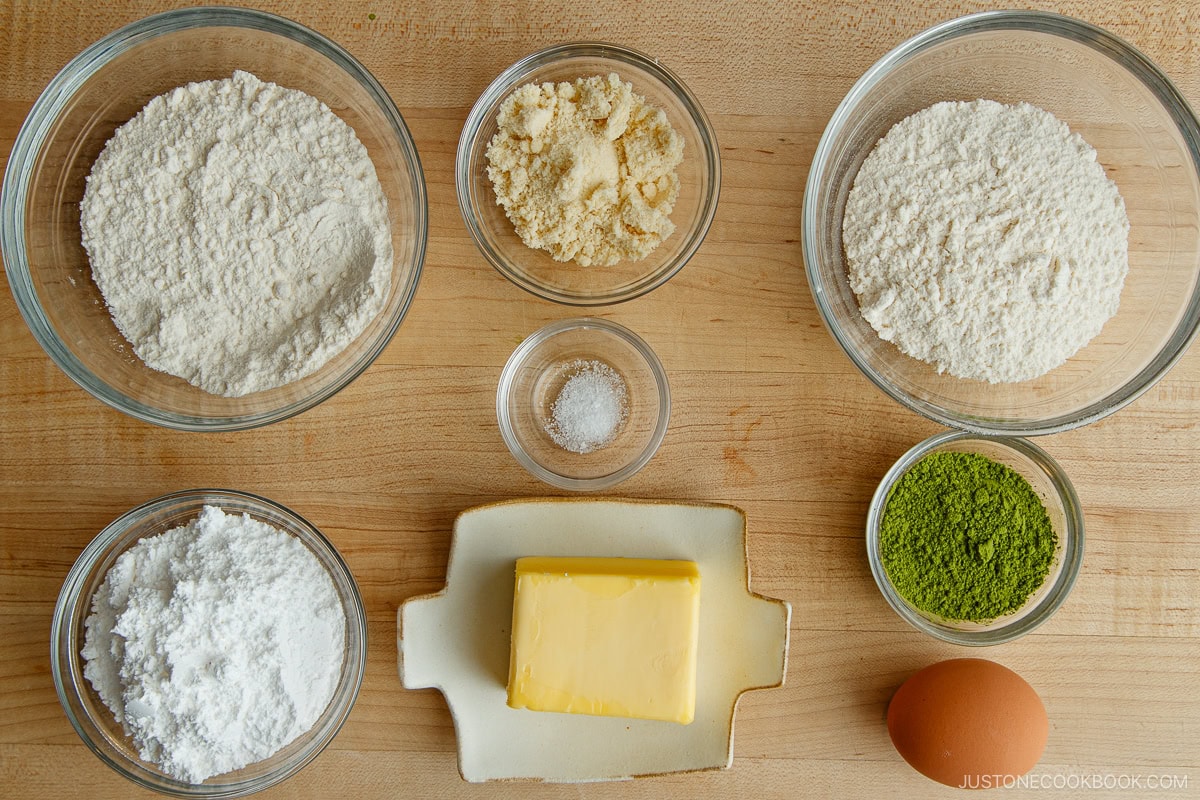
You will also need a hand or stand mixer with whisk (and paddle) attachments or food processor, an aluminum baking sheet, 2 resealable (Ziplock) sandwich-size bags, a rolling pin, and rolling pin guides (optional; I bought my acrylic rolling guides from Amazon).
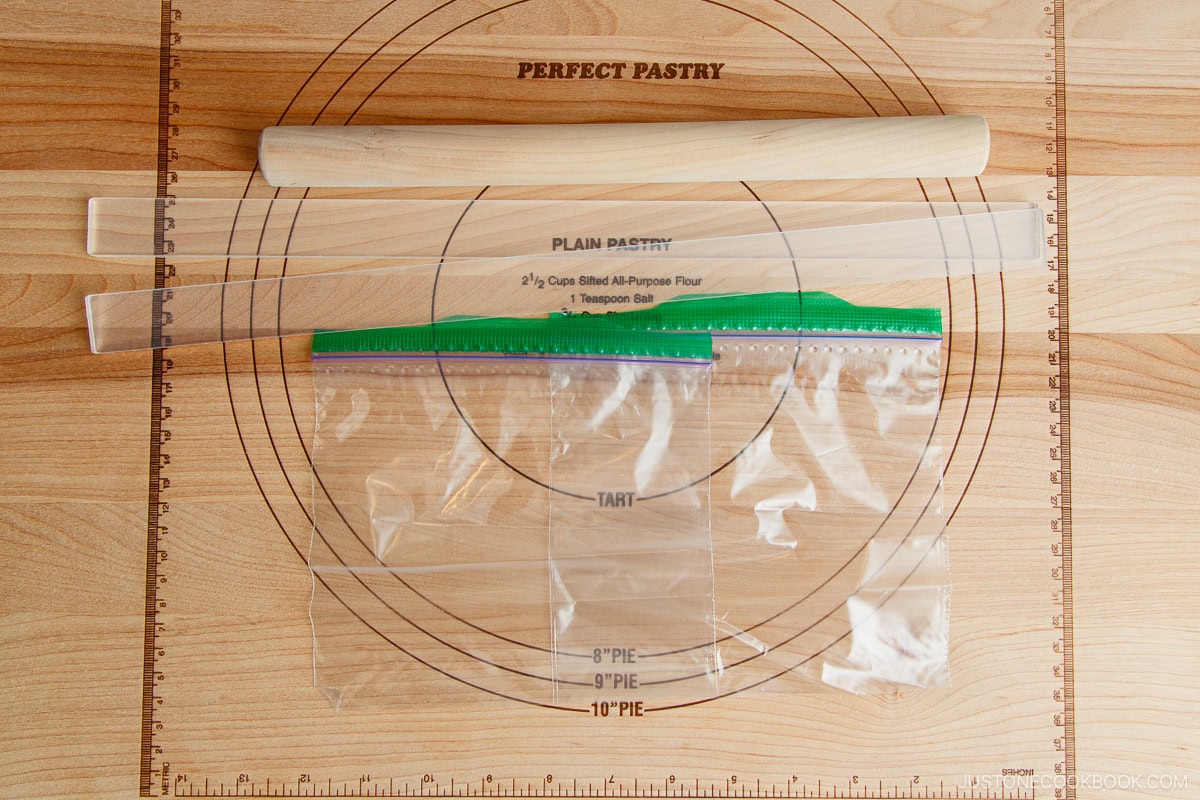
To Mix the Cookie Dough
Separate the egg yolk from the egg white.
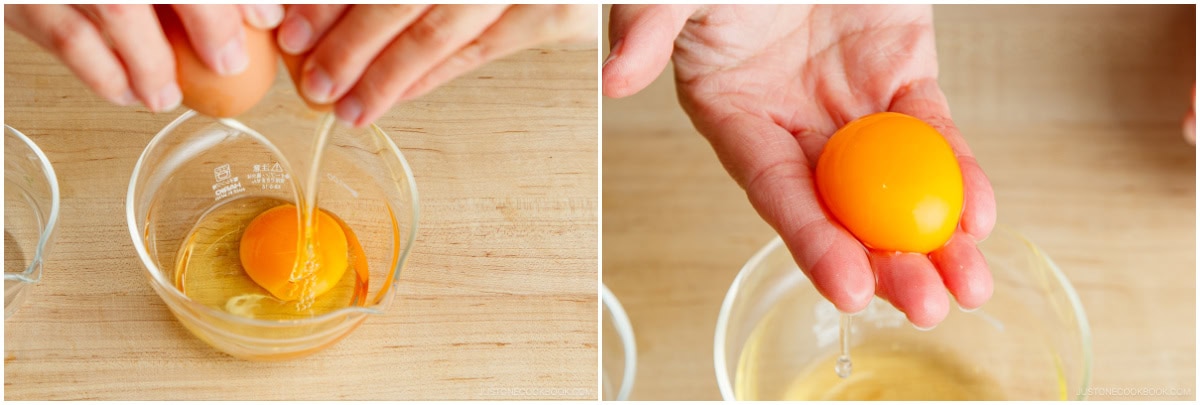
Place the egg white in a small bowl, cover with plastic, and store it in the refrigerator. Weigh the yolk and divide it in half for one batch of this recipe. Place the ½ egg yolk in a small bowl and mix until smooth.
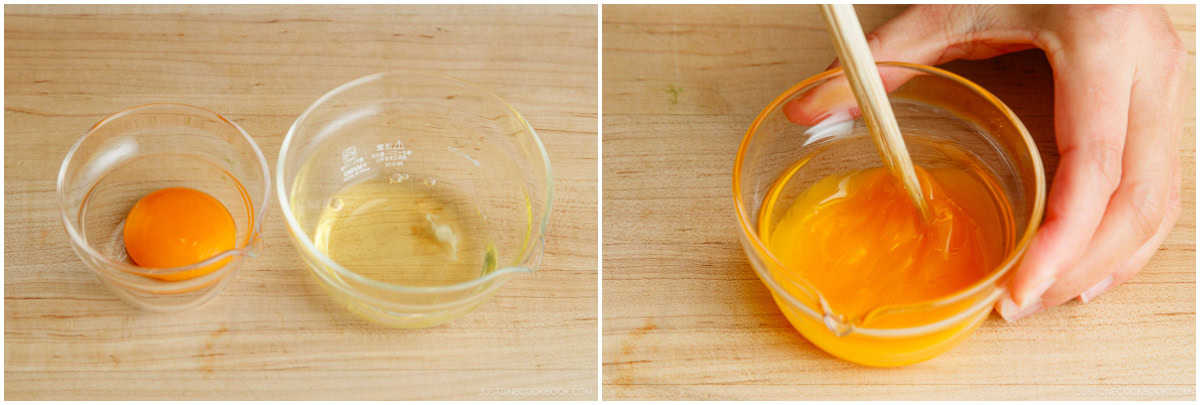
Place 7 Tbsp unsalted butter (at room temperature) in a bowl and press it with a silicone spatula until smooth. Add ½ cup confectioners’ sugar.
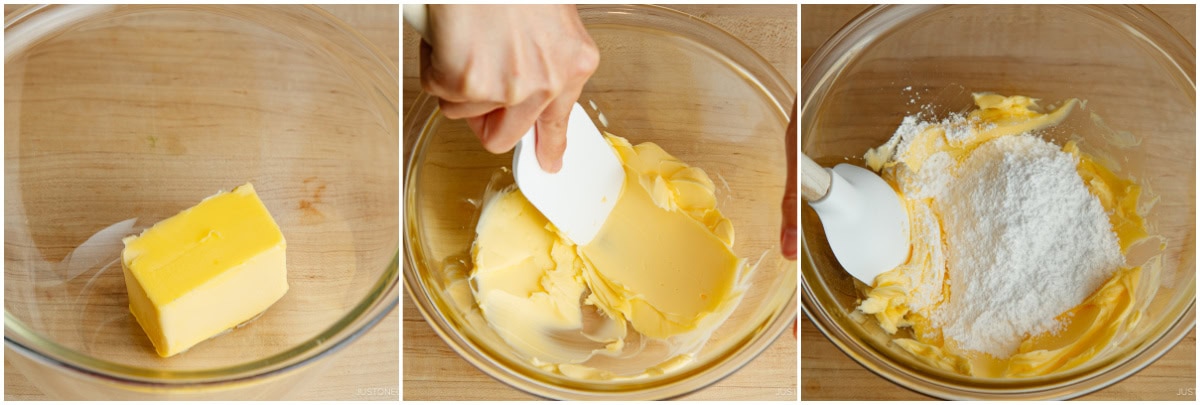
Blend well with an electric mixer until the mixture turns fluffy and pale. Tip: Whipping the butter and sugar mixture adds air, and this makes the cookies crispier.
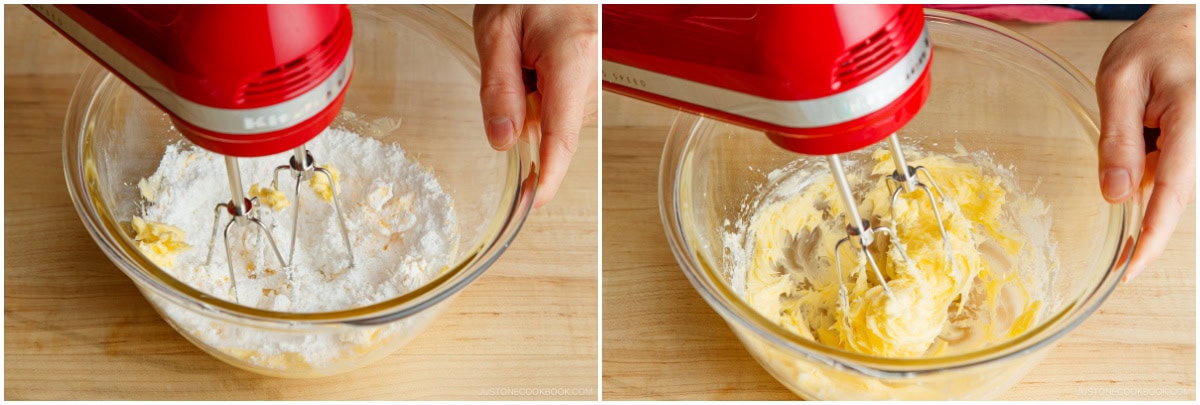
Add ⅛ tsp Diamond Crystal kosher salt and blend until incorporated.
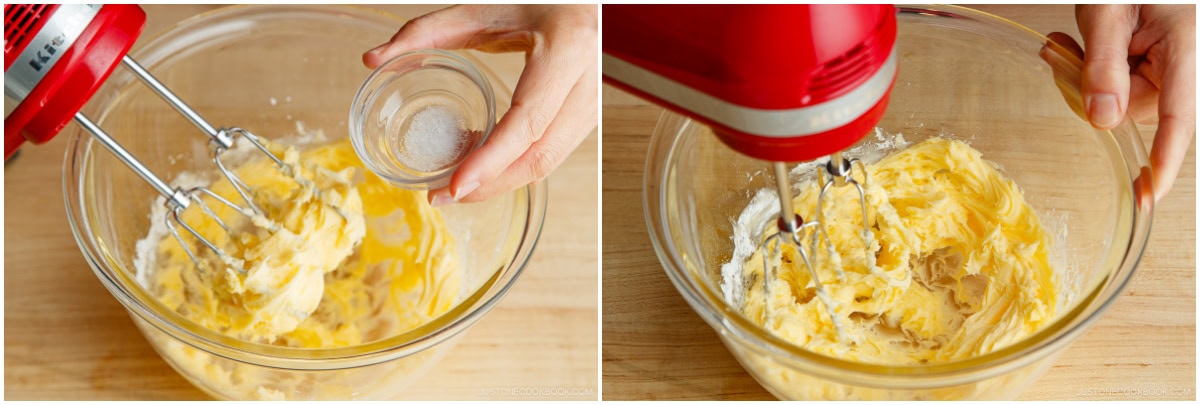
Then, add ½ large egg yolk and continue mixing until smooth.
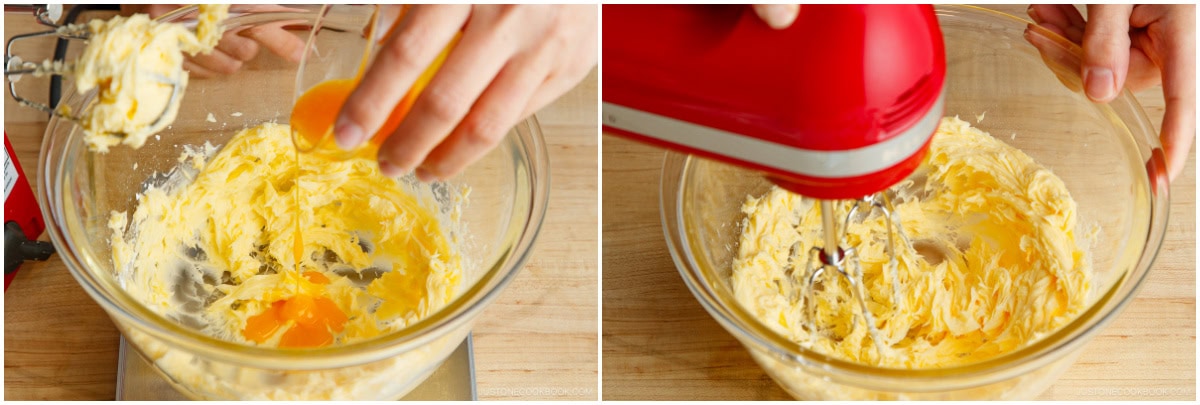
Add 2 Tbsp almond flour and blend it until fully incorporated and smooth.
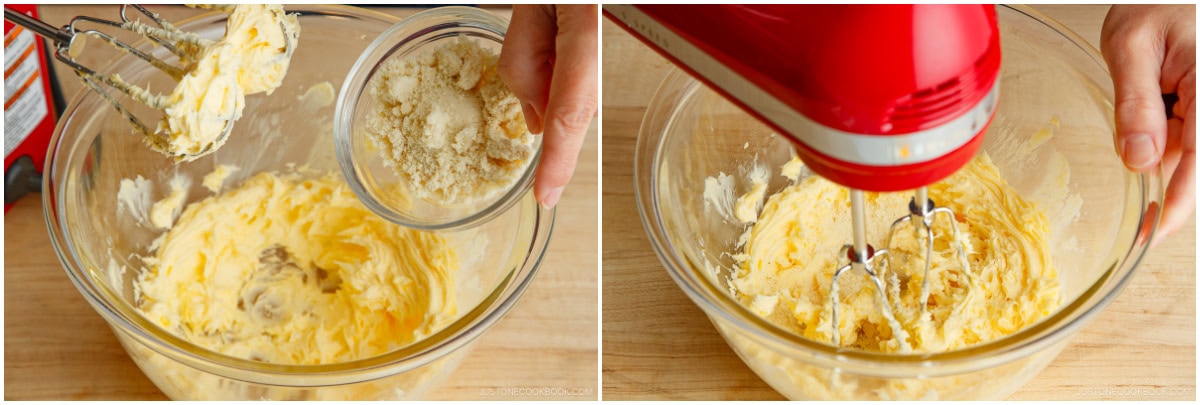
With the silicone spatula, scrape down the bowl to collect the dough.
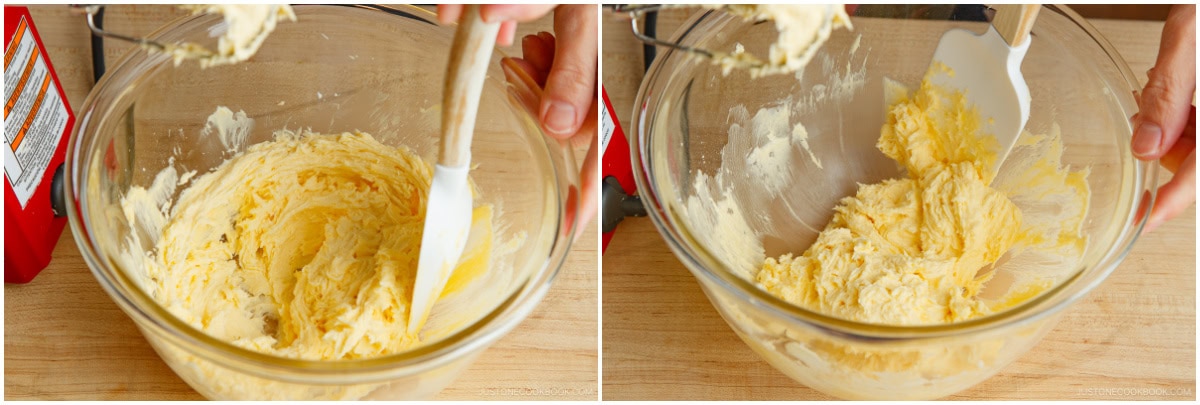
Now, weigh the dough in a clean bowl over a kitchen scale (I use a digital kitchen scale). Weigh the total amount and divide it in half. My batch of dough is roughly 180 g, so each half weighed about 90 g. Place each half in separate bowls, one to make the plain dough and the other to make the green matcha dough.
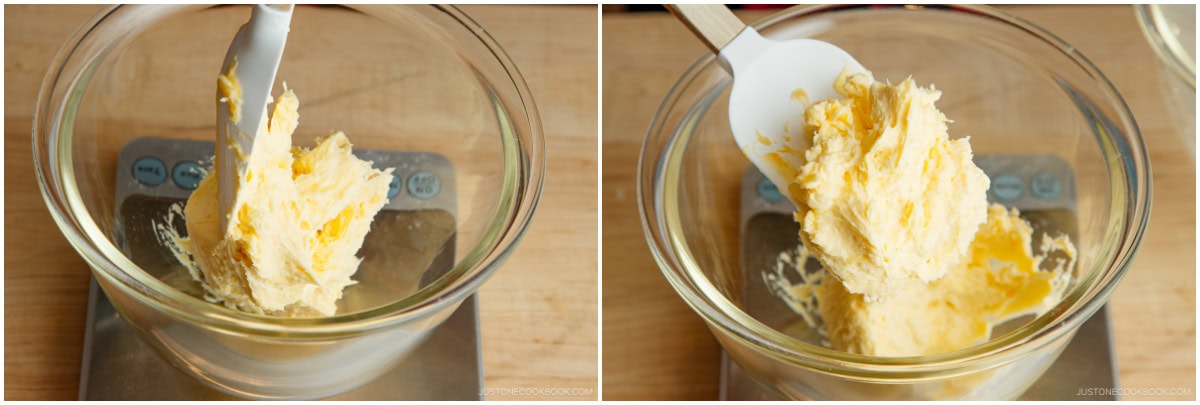
To Make the Plain Dough
Sift ½ heaping cup cake flour into the bowl for the plain dough.
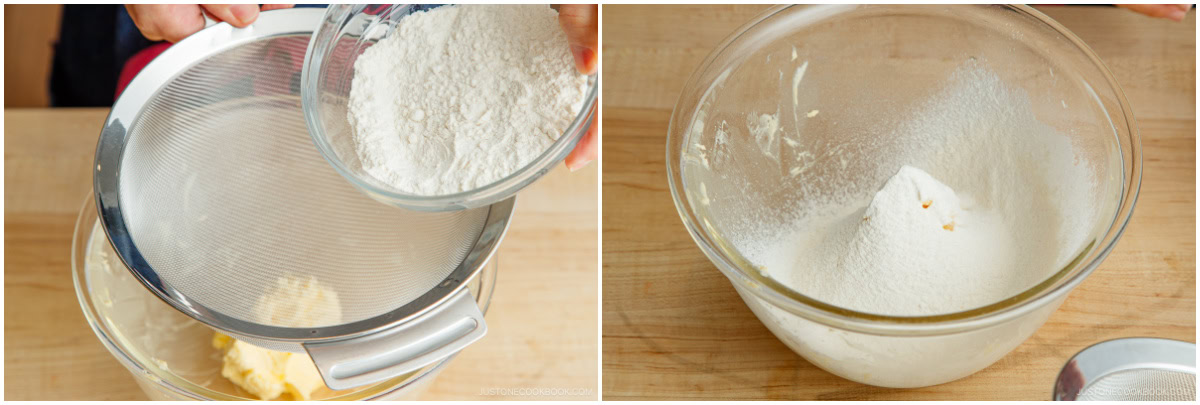
Lightly mix with the spatula, gently folding the flour into the dough until just incorporated. Do not overmix.
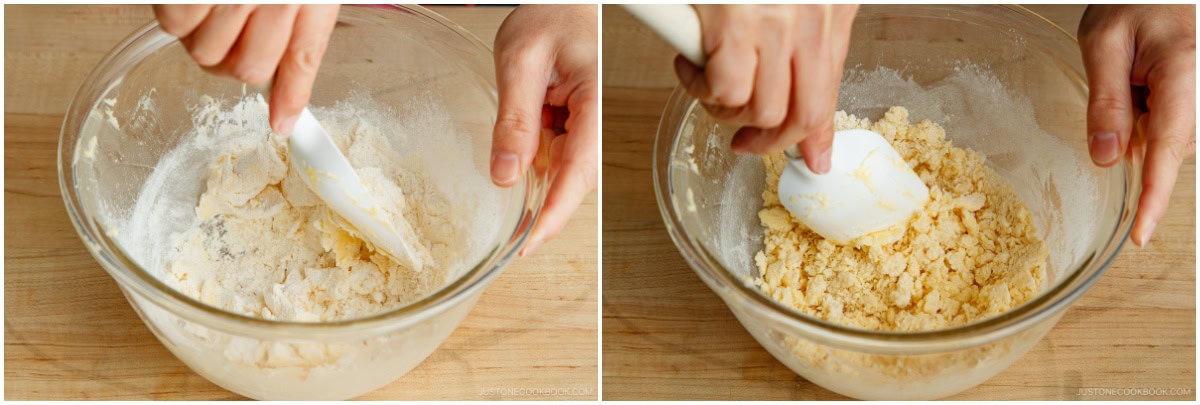
Once crumbly, press the dough together, shaping it into a ball and scraping the sides.
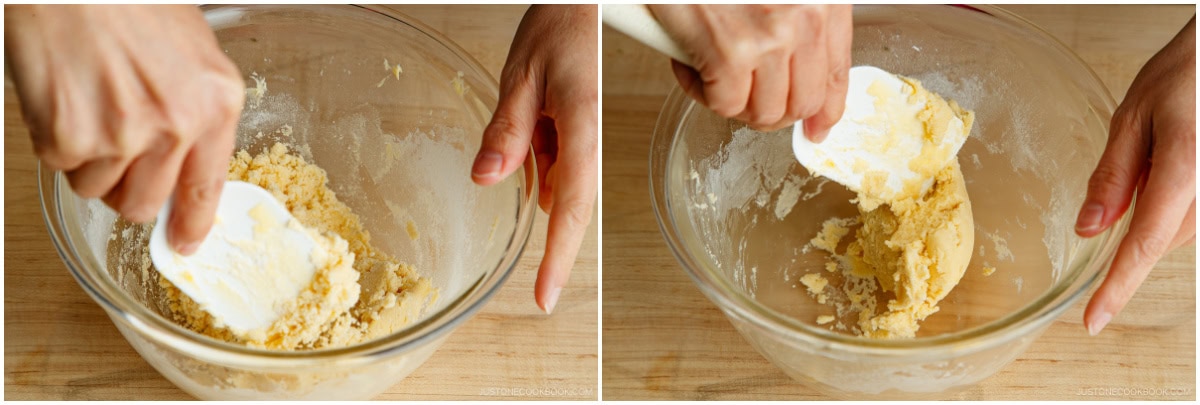
Put the dough ball in a plastic resealable (ziplock) sandwich bag. Set aside.
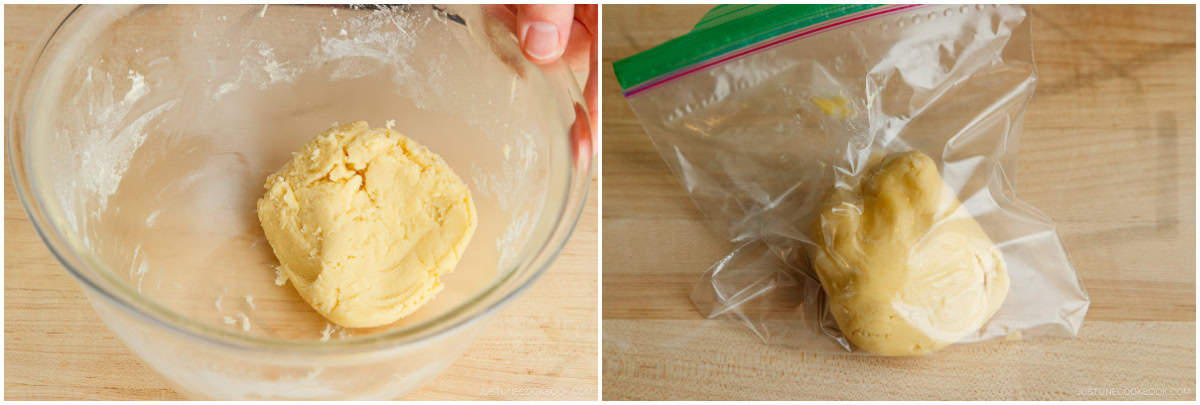
To Make the Green Matcha Dough
Using a hand whisk, mix 5 tsp matcha (green tea powder) into ½ cup cake flour until well incorporated. Tip: Pre-mixing makes it easier to blend in.
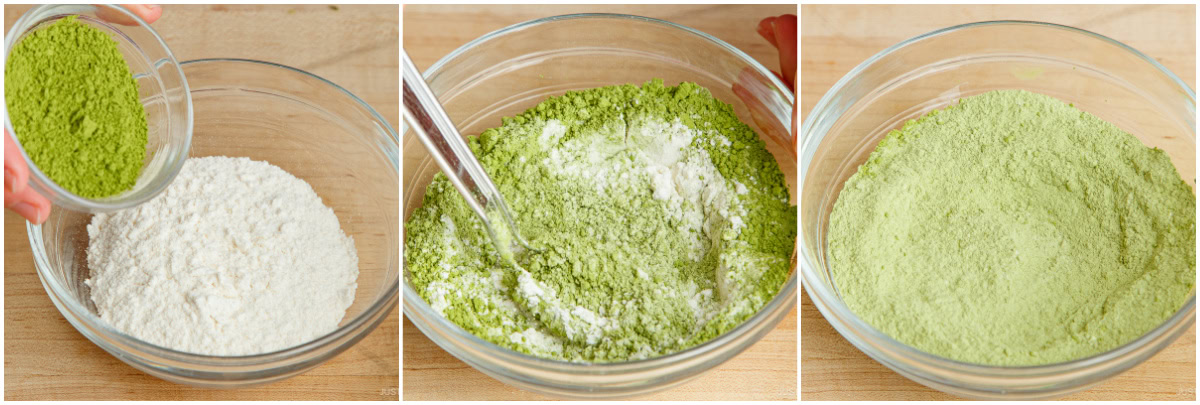
Sift the matcha-flour mixture into the bowl with the other half of the dough.
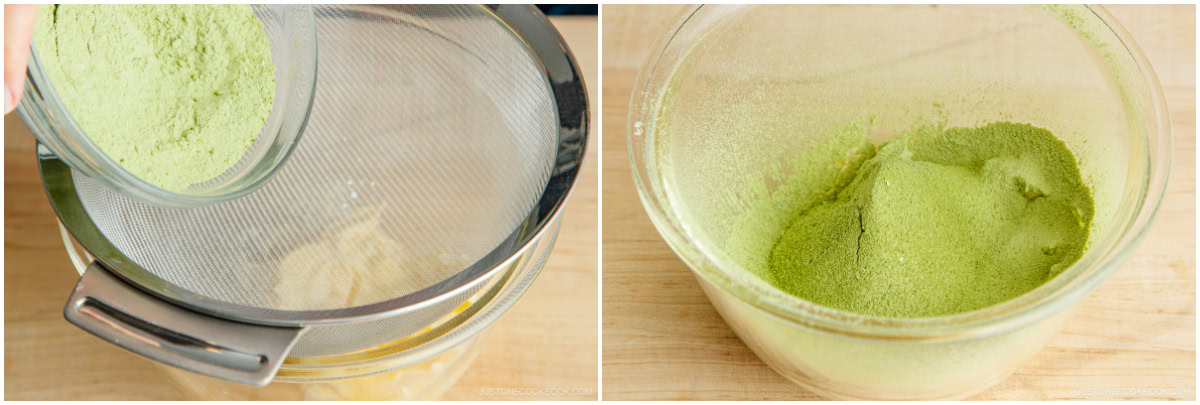
Gently fold the flour mixture into the dough with the spatula until just incorporated. Do not overmix.
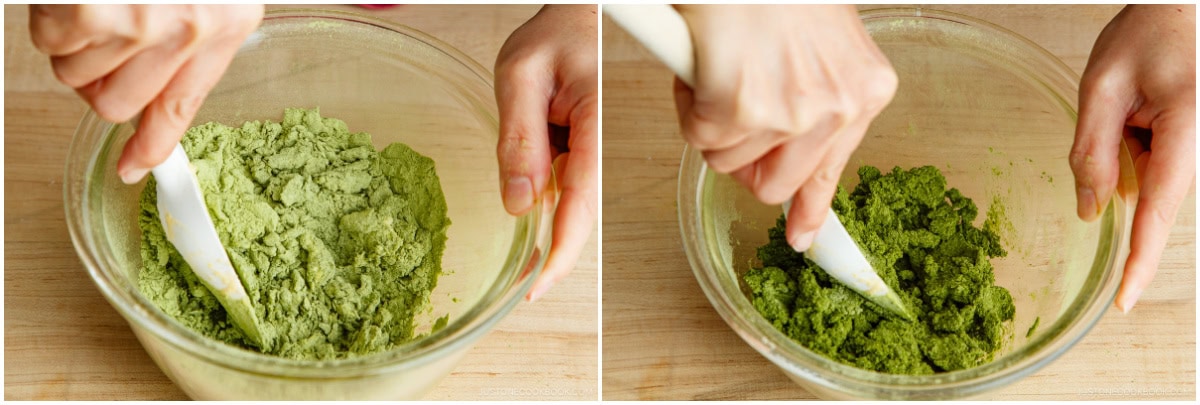
When crumbly, press it into a cohesive dough ball and put it in a plastic resealable (ziplock) sandwich bag.
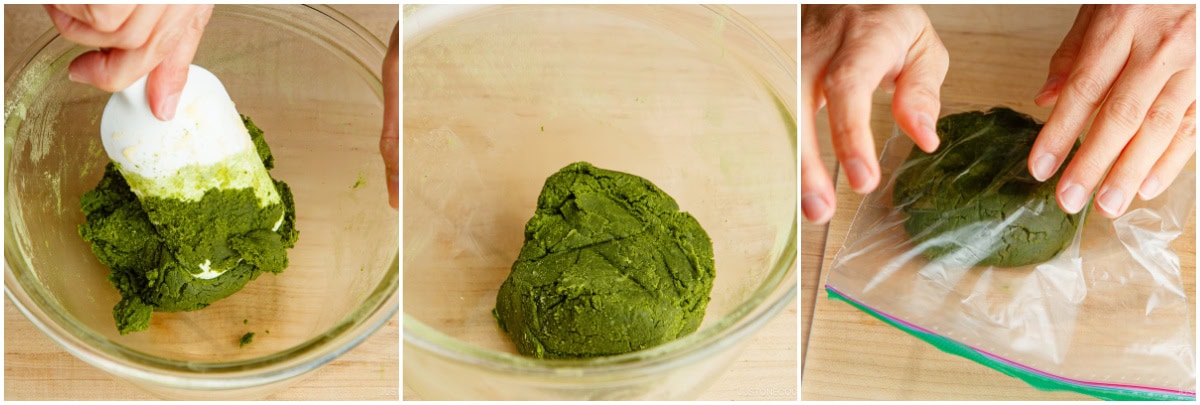
To Roll Out the Dough Balls
Release the air from the sandwich bag, seal, and roll the dough ball flat with a rolling pin.
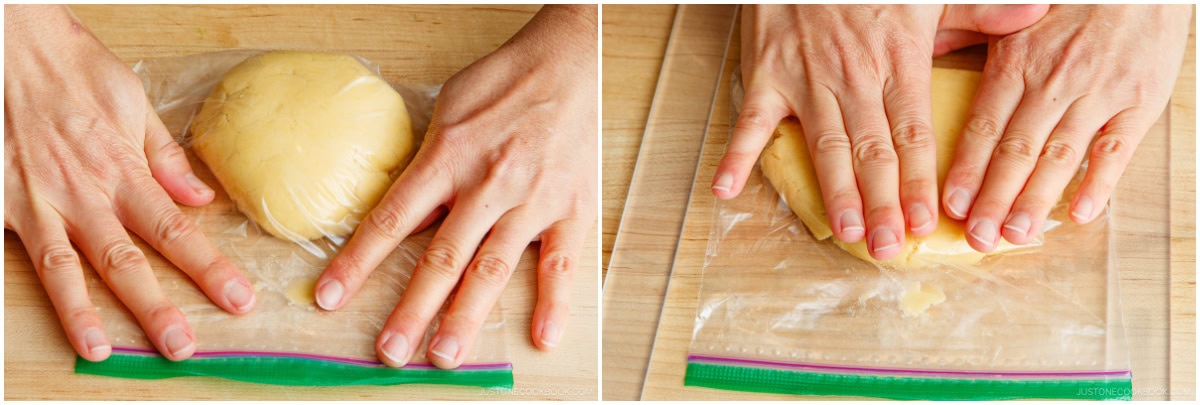
If you're using the rolling guides, place them on either side of the bag and roll flat. You could stack two disposable chopsticks (or something similar) as rolling guides. However, my recipe should work perfectly to completely fill the sandwich bags with cookie dough to a 5-mm thickness without the use of rolling guides.
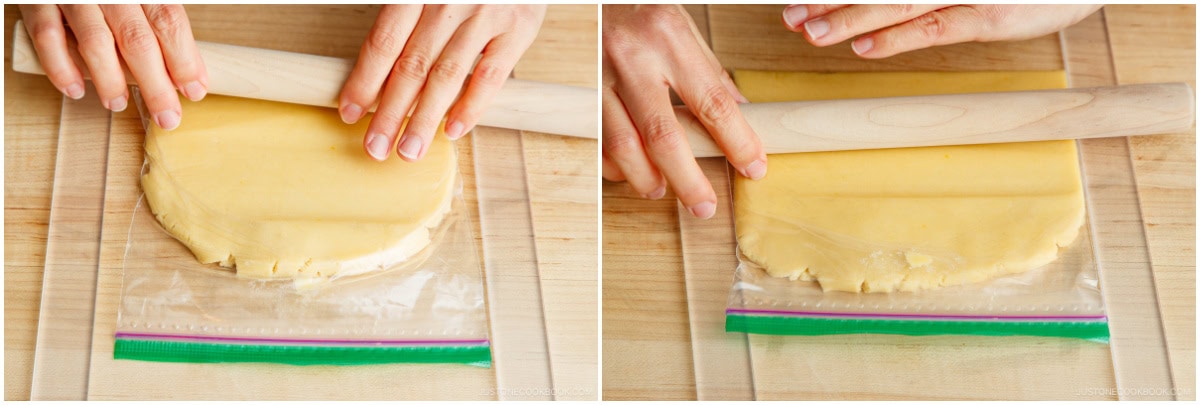
Using the rolling pin, evenly distribute the dough.
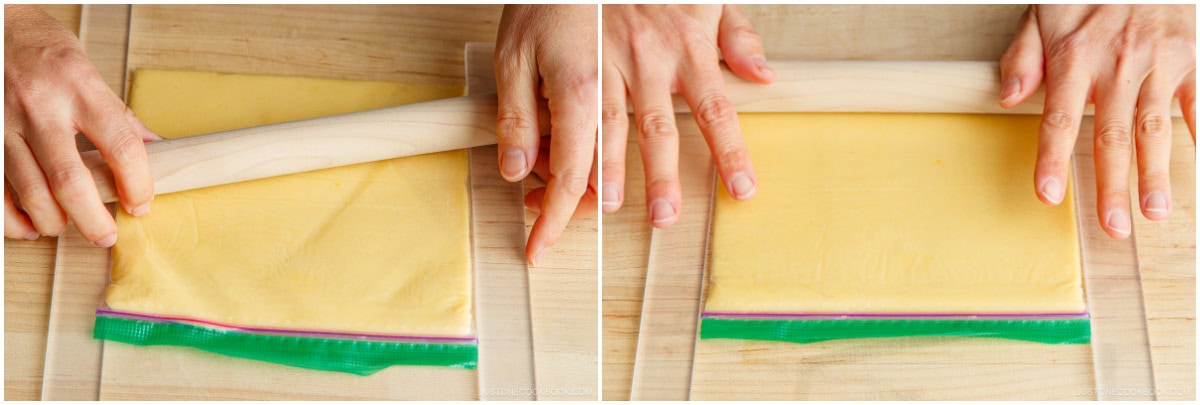
Repeat rolling out the matcha dough using the same method.
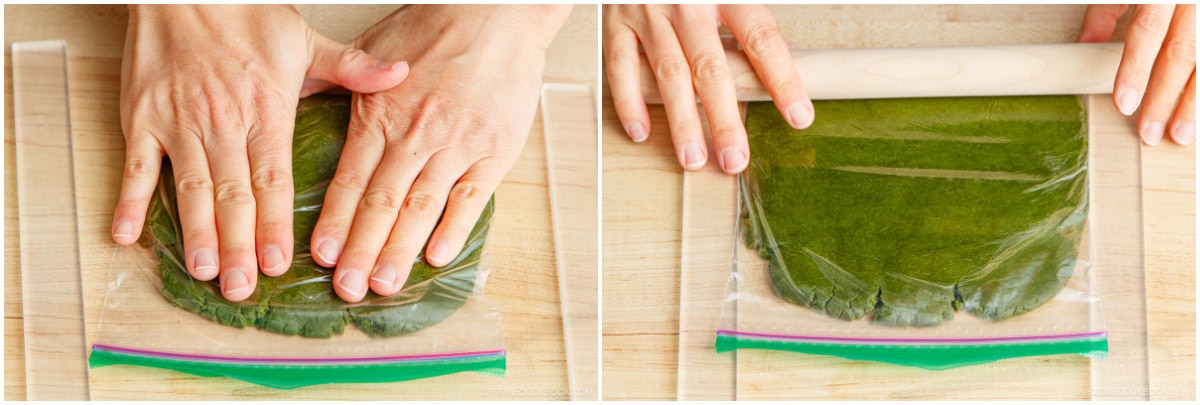
Roll out gently so the dough doesn't come out of the sealed bag. Now, place the bags of flattened dough in the refrigerator and chill for at least 1 hour.
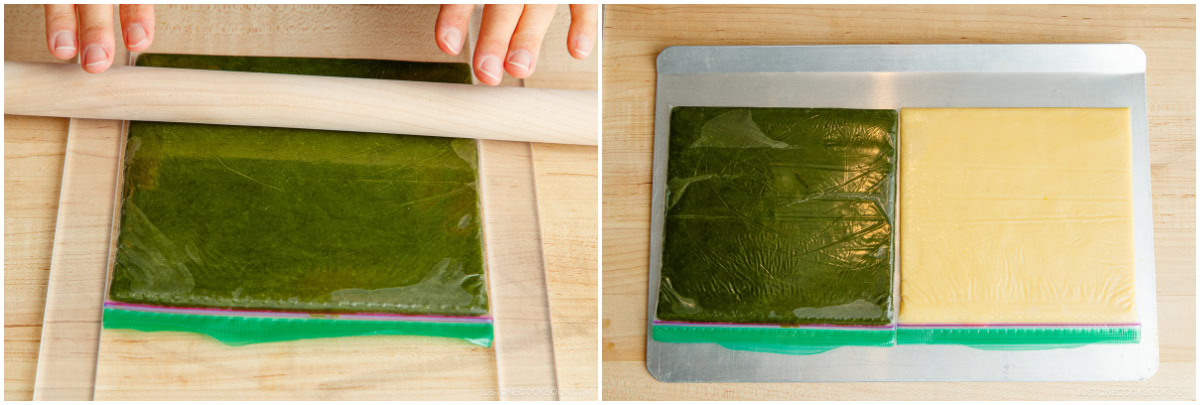
To Assemble
Using a sharp knife, cut open both sides of one sandwich bag. Repeat the same for the other bag.
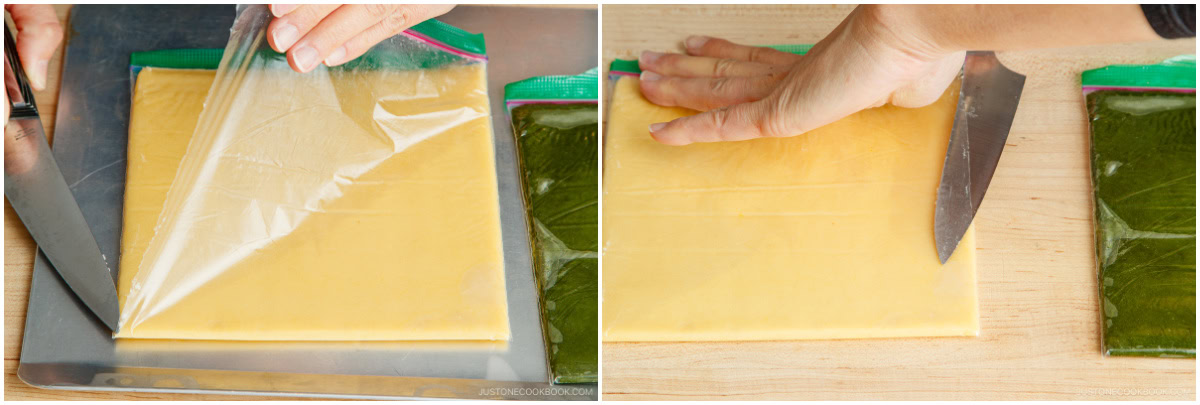
Peel back the tops of the sandwich bag to uncover both doughs, leaving the bottom of the bags in place.
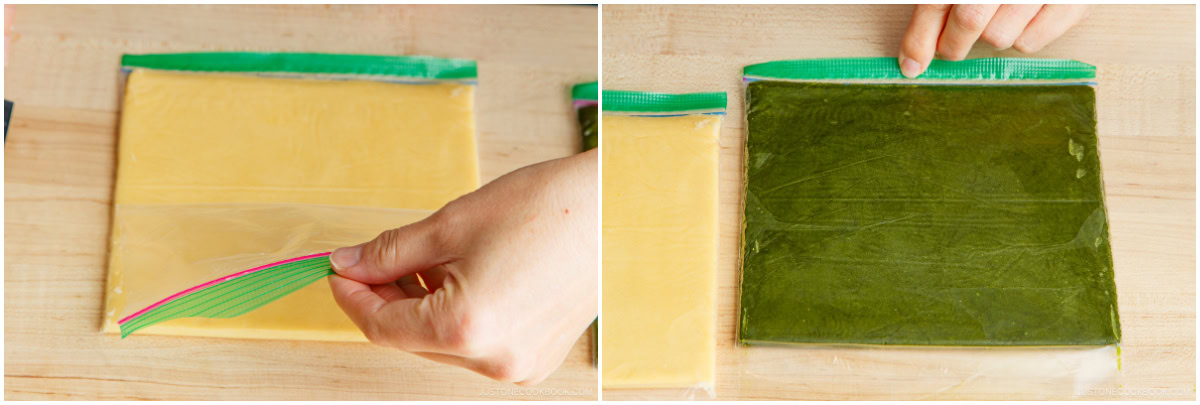
Lightly brush the matcha cookie dough surface with egg white. Then, flip the plain cookie dough onto the top of the matcha dough. Apply gentle pressure to adhere the two dough layers. Then, peel away the plastic bag from the plain dough.
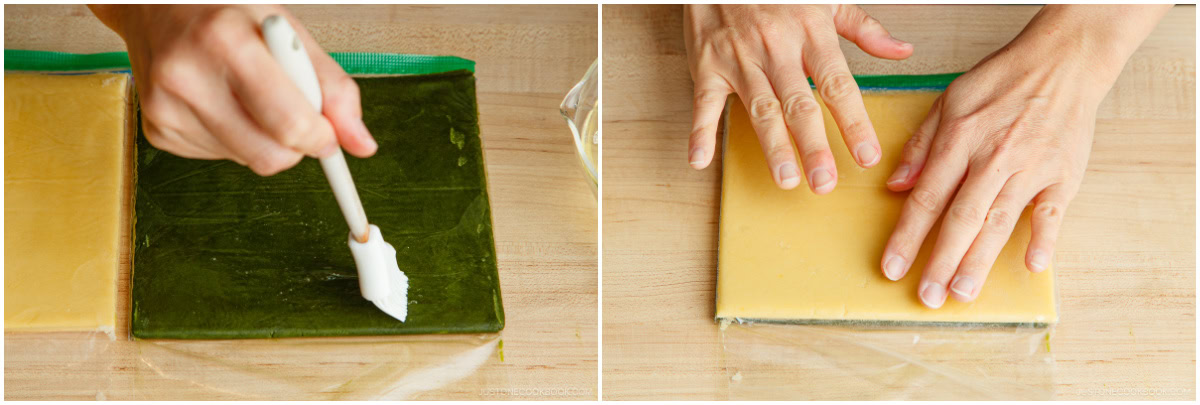
Cut the layered dough in half again. Brush one half with egg white.
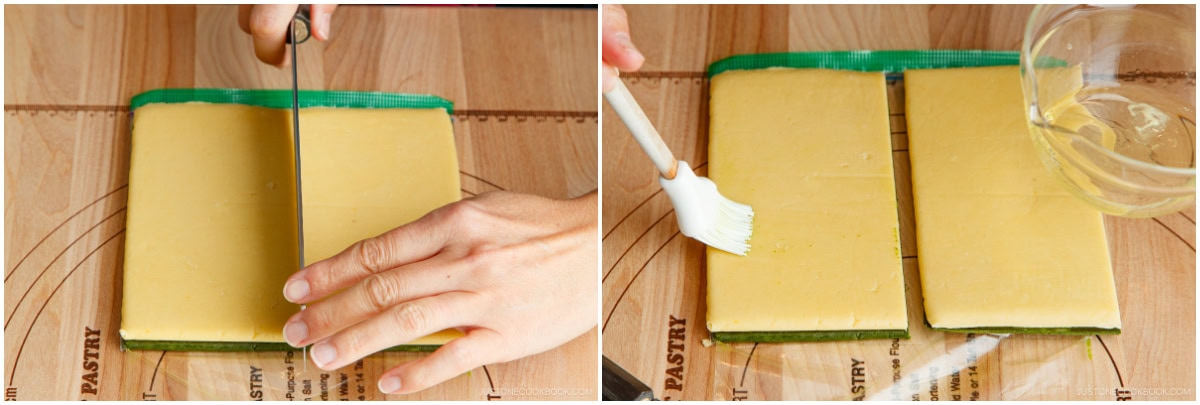
Place the other half on top so they stack in alternating colors to create four layers when viewed from the side. When stacking, make sure to match the clean-cut sides. Apply gentle pressure to adhere.
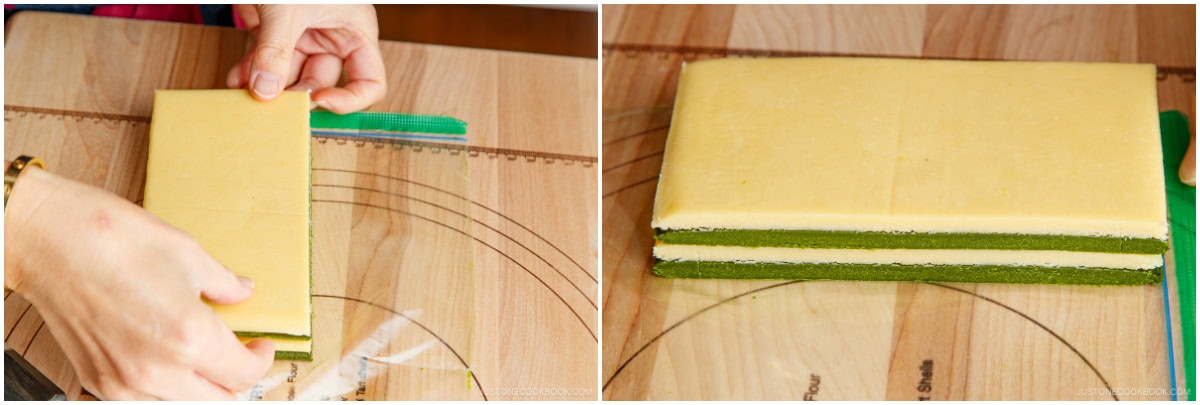
Mark 1 cm intervals (just over ⅜ inch) on the top and bottom edges. I use a pastry board with measurements, but I highly recommend using a ruler here.
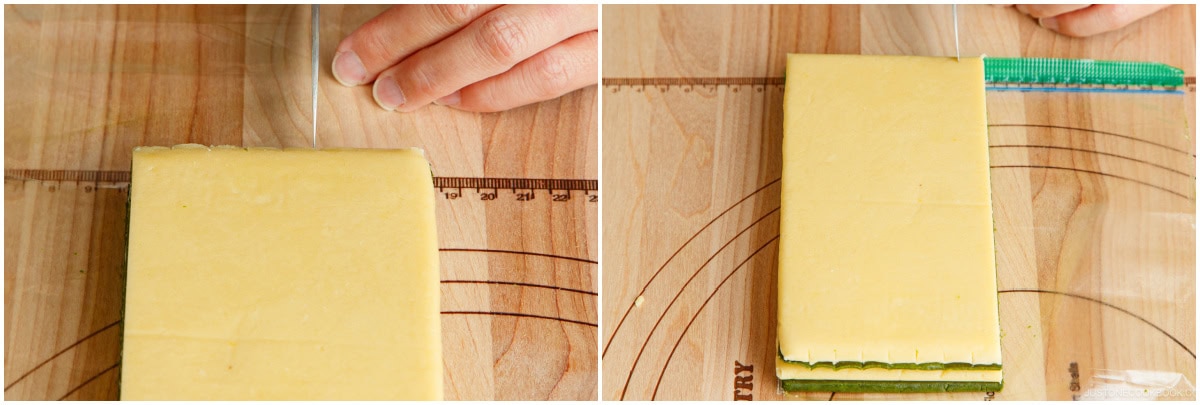
Cut straight down to make 1-cm slabs or strips of layered cookie dough. Was able to cut eight strips.
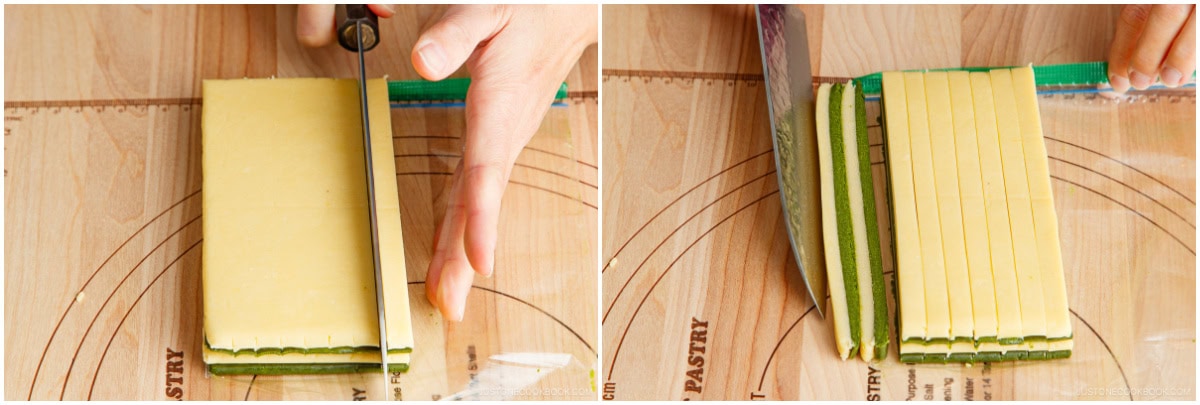
Lay three strips flat on your work surface. Flip over the middle strip so the colors are reversed from the strips on either side. This will alternate the block colors when you stack the strips. Brush with egg white and stack in three alternating layers. Press gently to adhere without misshaping the checkered dough log.
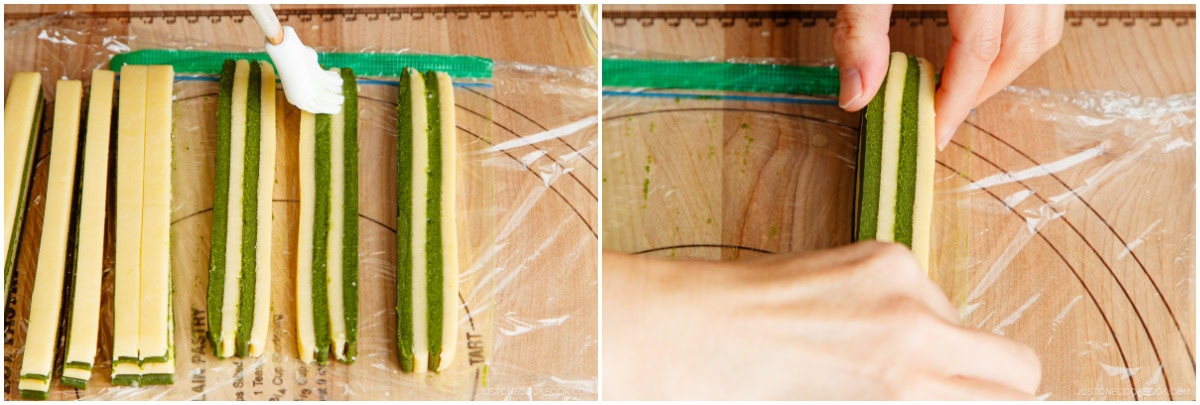
Repeat stacking three more strips into a checkered dough log. If the dough strips are becoming too soft to handle, wrap them in plastic and place on a tray to refrigerate until firm, then try again. Wrap the checkered dough logs in plastic and chill in the fridge for at least 1 hour. Tip: If you want to freeze the checkered cookie dough logs to slice and bake at a later time, please see the To Store section for instructions.
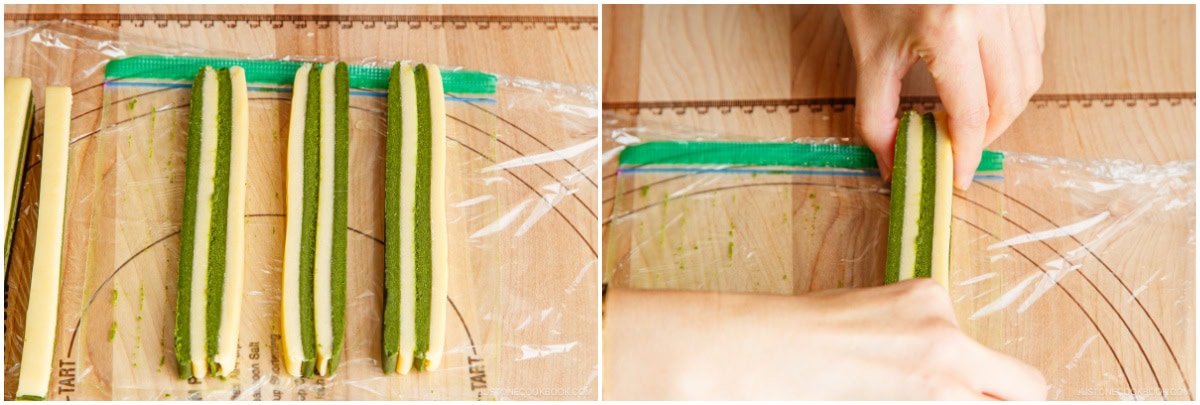
For the leftover two strips of layered dough, I simply roll them into a ball, then roll the ball into a log. Alternatively, you could cut the strips in half crosswise and stack them to make short checkered logs. Either way, wrap the leftover dough log in plastic and chill.
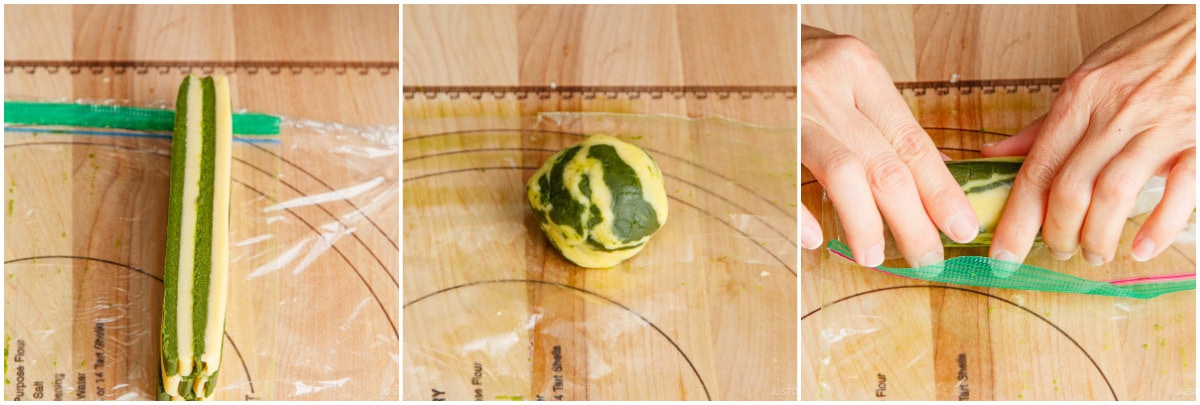
To Bake
Preheat the oven to 350°F (175°C). Slice the chilled dough logs into cookies ¼ inch (7 mm) thick.
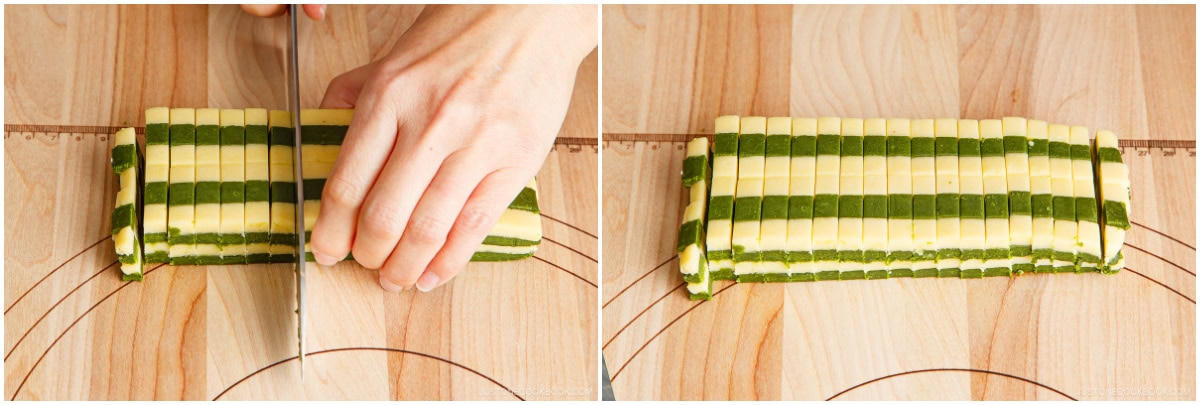
Place on a baking sheet lined with parchment paper, and bake for 13-15 minutes, or until slightly browned on the bottom.
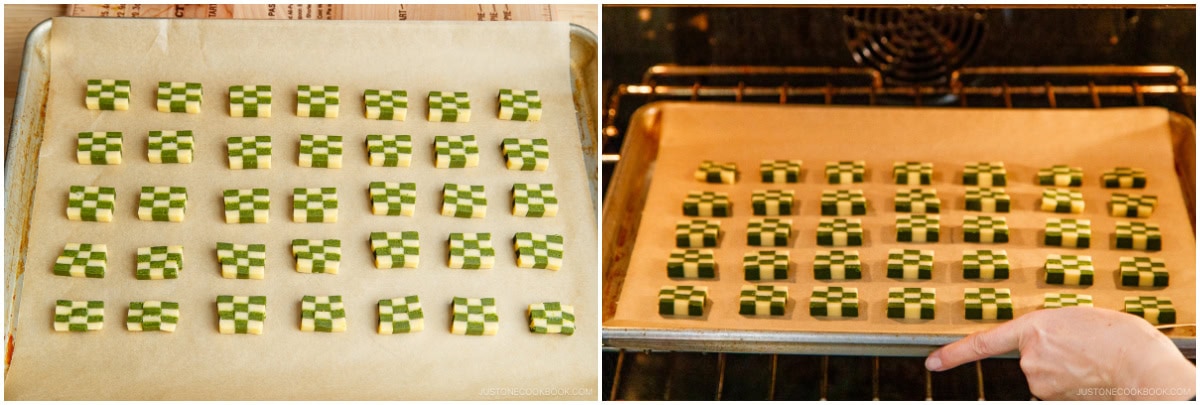
The residual heat will brown the cookies more, so remove them from the oven when they are just a tad golden. Cool for 5 minutes on the baking sheet, then transfer the cookies to a wire cooling rack.
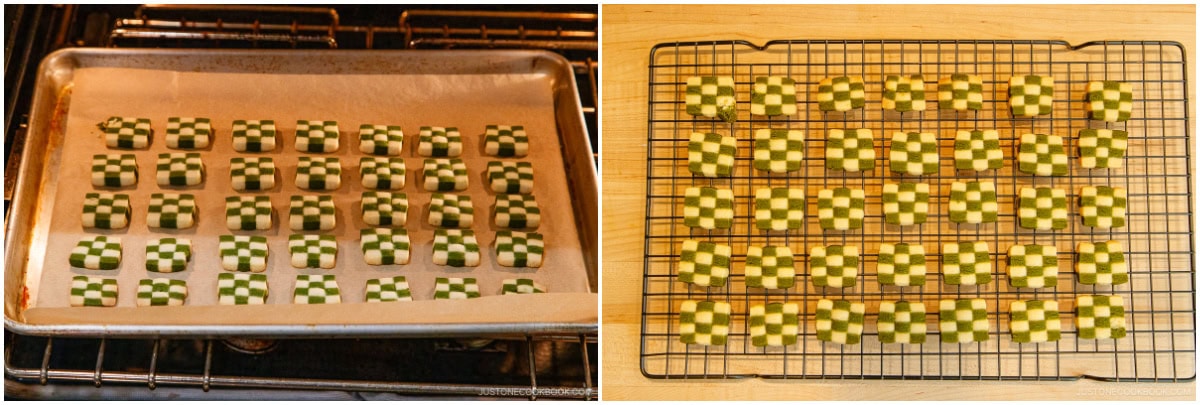
Continue slicing and baking the leftover cookie dough. Tip: When you slice the dough log, rotate it to maintain the circle shape.
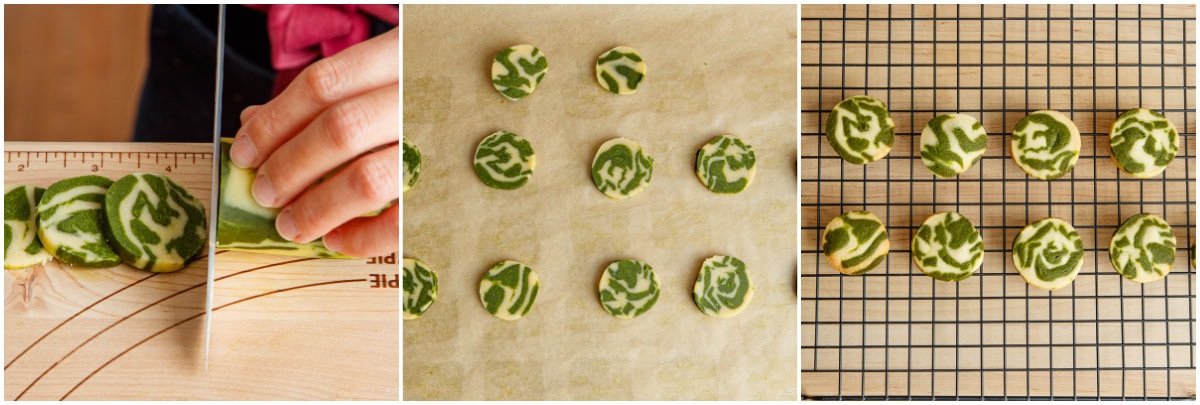
Serve with your favorite beverage and enjoy!

To Store
Once the matcha checkerboard cookies are completely cool, store them in an airtight container at room temperature for up to 1 week (I add a Silica Gel Packet). To freeze, transfer the matcha checkerboard cookies to a freezer-safe airtight container or resealable freezer bag. Freeze them for up to 3 months. Thaw in the refrigerator overnight to enjoy. To freeze the cookie dough: Tightly wrap the checkered logs in plastic wrap and put them into freezer bags. Freeze for up to 3 months. Let them thaw in the refrigerator for 2 hours before slicing and baking.
Baking Sheets: I strongly encourage you to use a light-colored aluminum baking sheet that conducts heat uniformly so your cookies and pastries brown evenly. I had success testing this recipe on an aluminized steel baking sheet as well. You will not have the same result if you use another type of baking sheet with a dark-colored surface. In my experience, I’ve burned the bottom of my baked goods on a dark-colored carbon steel baking sheet, so I highly discourage using this kind of pan.
Ovens: I encourage you to check your oven‘s temperature with an oven thermometer, as the actual temperature inside may differ from the display setting. Every oven is different; please adjust your setting to achieve the correct actual temperature. Also, I tested this recipe in a full-sized oven. Your baked goods may cook faster if you use a countertop (or other small) oven. Closely monitor your baking and be ready to adjust the bake time if needed.
Author: Namiko Hirasawa Chen
Course: Dessert
Cuisine: Japanese
Keyword: cookie
©JustOneCookbook.com Content and photographs are copyright protected. Sharing of this recipe is both encouraged and appreciated. Copying and/or pasting full recipes to any website or social media is strictly prohibited. Please view my photo use policy here.
If you made this recipe, snap a pic and hashtag it #justonecookbook! We love to see your creations on Instagram @justonecookbook!


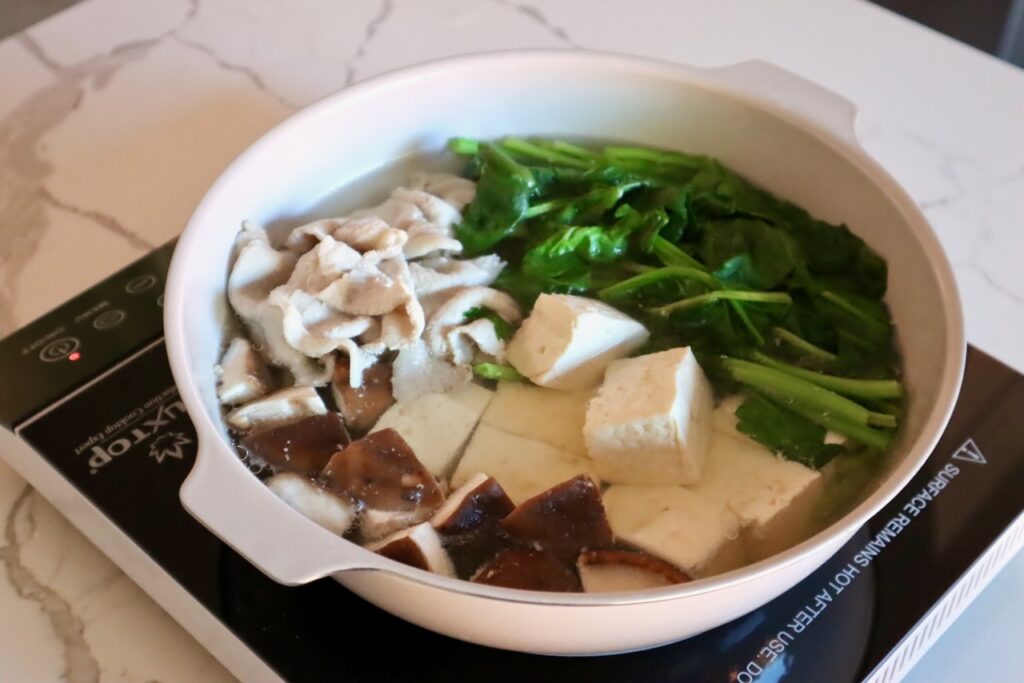

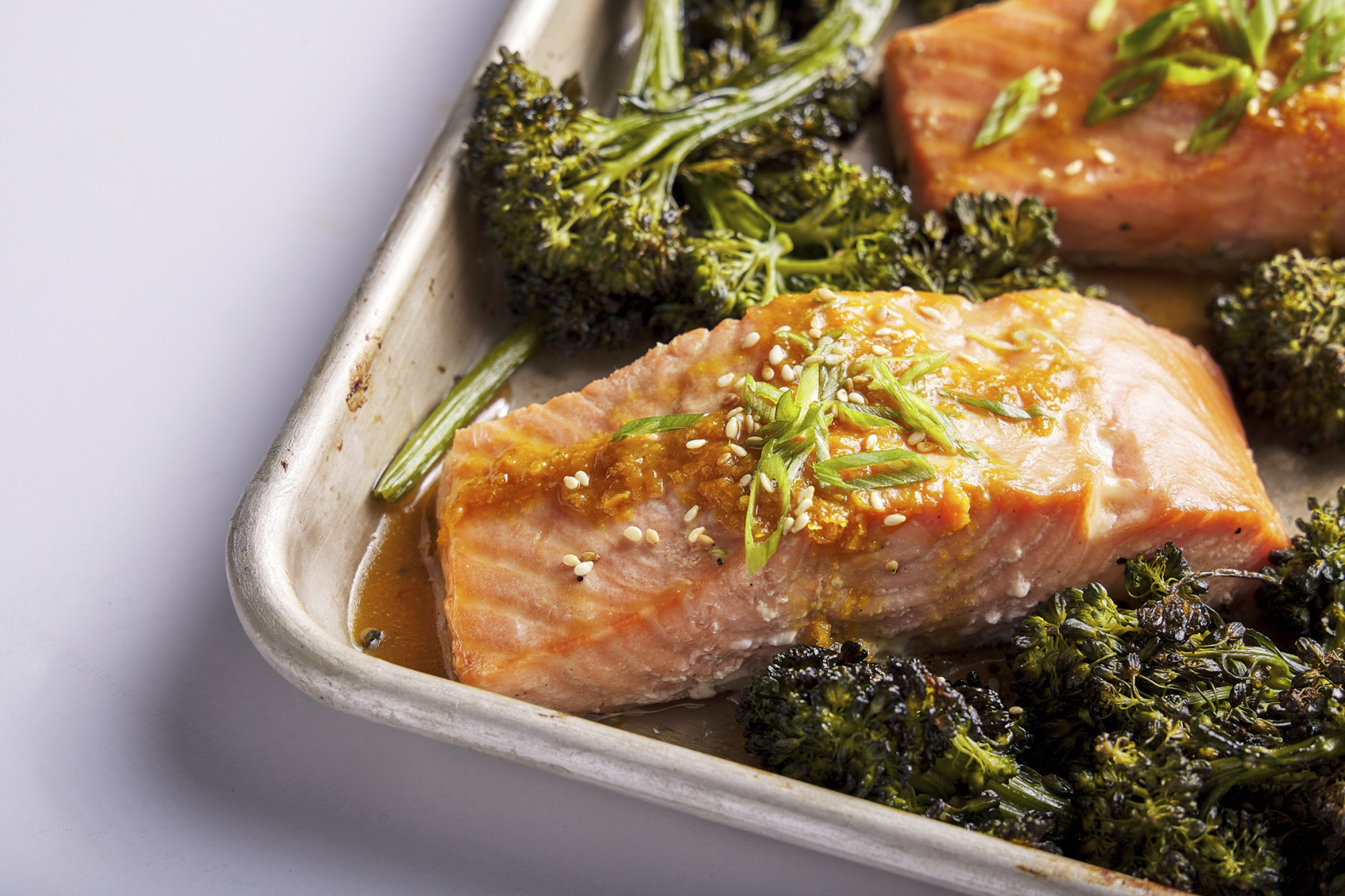
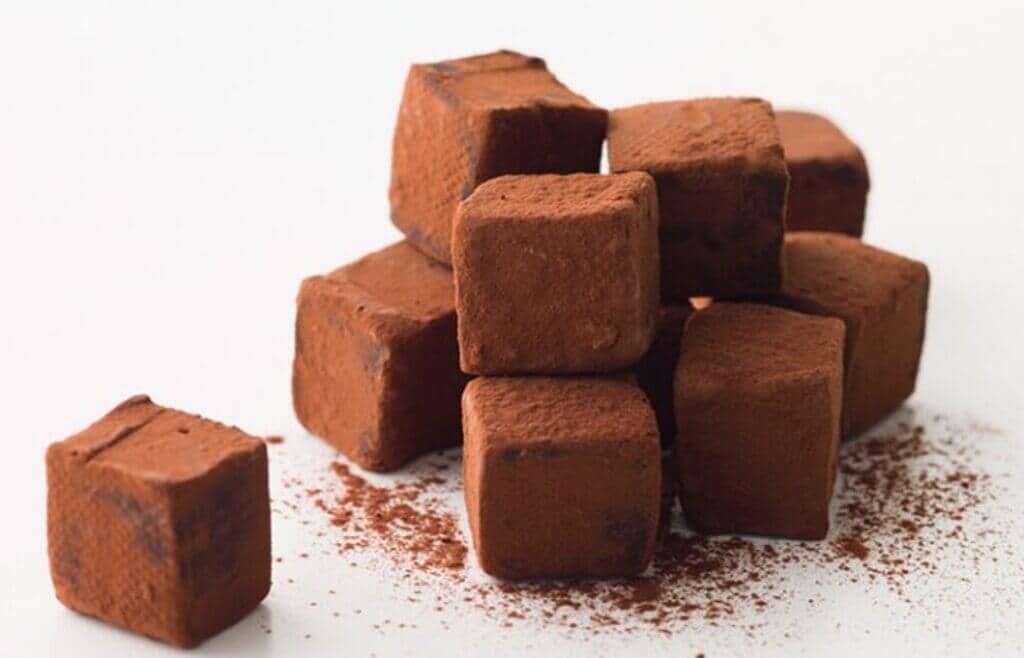


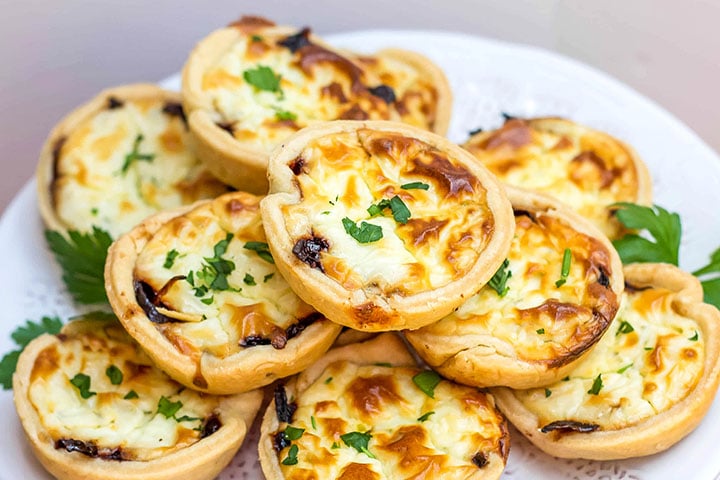

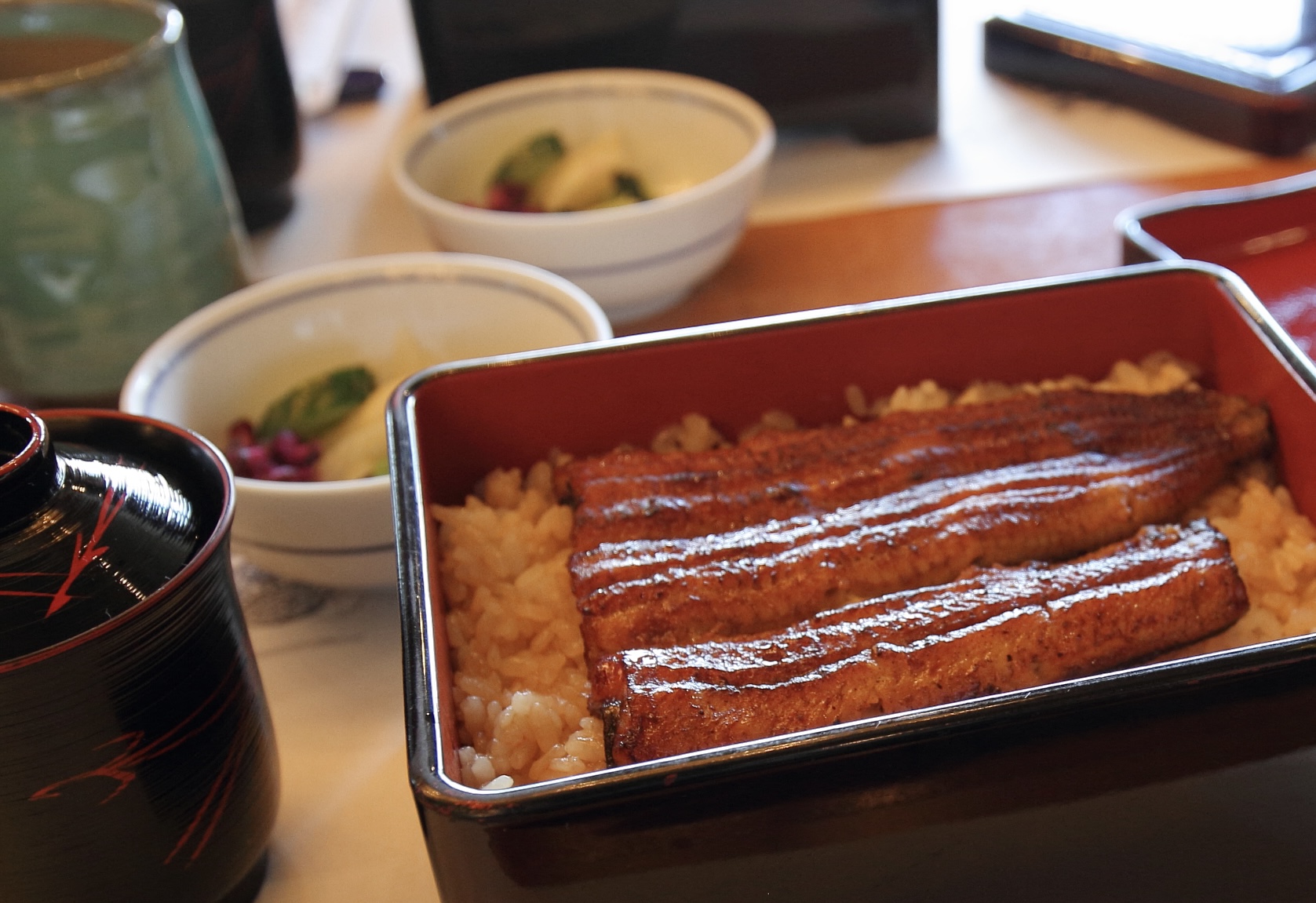
 English (US) ·
English (US) ·